- Striking design, inside and out
- Engaging and comfortable to drive
- Value for money and ownership credentials
- She's thiiiirsty
- Awkwardly-shaped boot
- Underdog status
The 2021 Genesis GV70 is the car Genesis Australia has been waiting for. When we got our hands on our first Genesis, the G70, back in October 2020 we weren’t what sure to expect. Hyundai’s luxury arm touted itself as a serious contender for established luxury rivals but we’ve seen this before – with brands like Infiniti struggling to find its footing amidst highly desirable names like Audi, BMW and Mercedes-Benz. Those of you who read that G70 review will know that we were very impressed by the G70 2.0T as well as the G70 3.3T that followed it. The only real hurdle we saw was the slightly generic, derivative styling and lack of brand cachet.
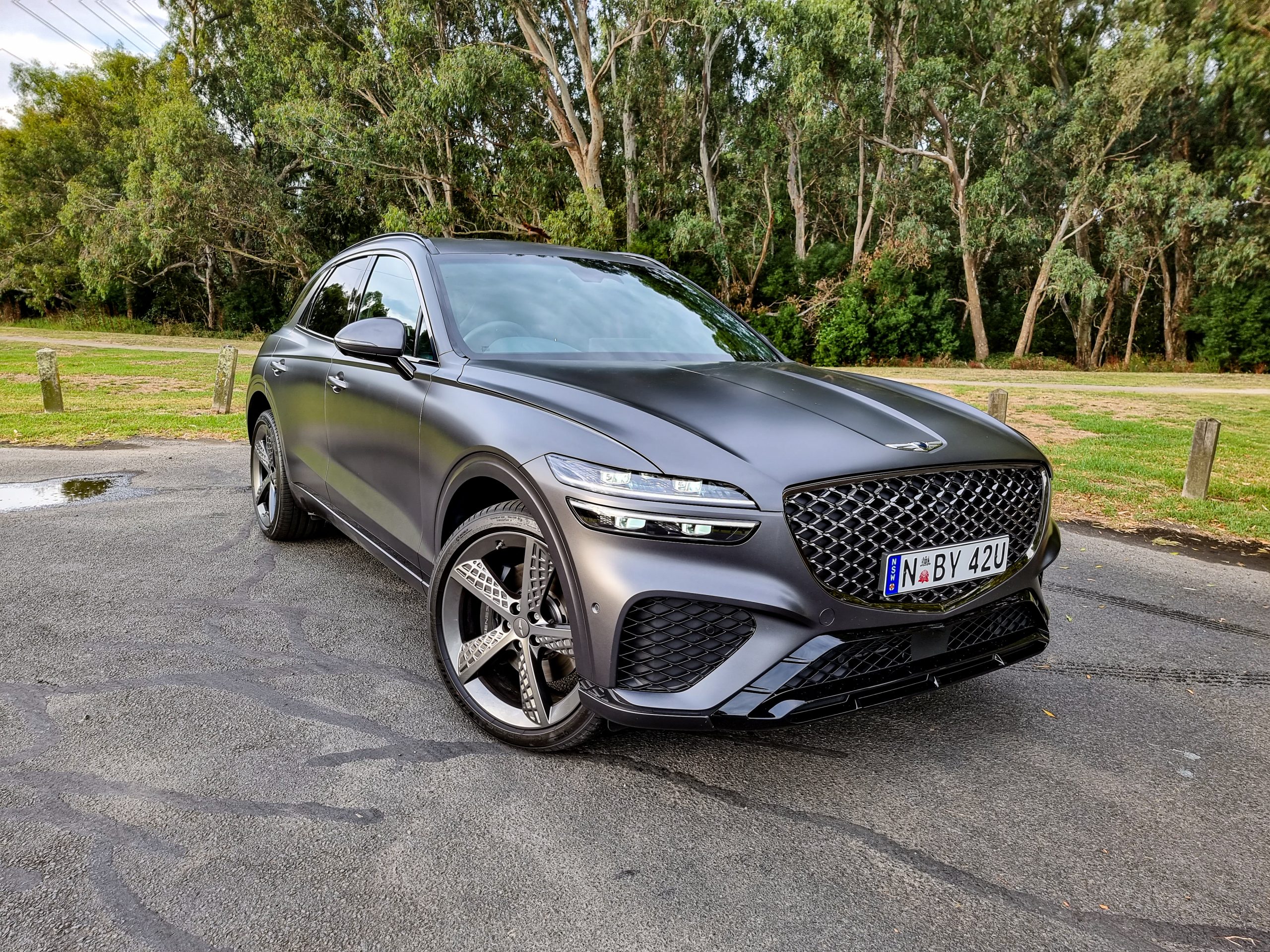
Since then a slew of new-generation Genesis models landed and we’ve since tested the G80 executive sedan and GV80 large SUV. Both introduced Genesis’ new “Athletic Elegance” design language that took the Korean brand from cherry picking styling cues off others to forging their own path. The all-new 2021 Genesis GV70 mid-size SUV is not only its most distinctive model yet, but it’s also arguably the most important model – facing serious contenders like the Audi Q5, BMW X3 and Mercedes-Benz GLC. Does this Korean contender have what it takes to carve out a slice of the premium mid-sized SUV pie? Let’s find out.
Price & Equipment: 9/10
The 2021 Genesis GV70 kicks off the range with a 2.5-litre turbocharged four cylinder petrol that can be had with rear-wheel drive (2.5T) or all-wheel drive (2.5T AWD) – costing $66,400 or $68,800 plus on-road costs respectively. But you don’t want either of those two. Buyers looking for a more efficient GV70 will be better off stepping up to the 2.2D AWD with its 2.2-litre turbodiesel four-cylinder pinched from the Hyundai Santa Fe sending power to all four wheels for $71,800. If you want the GV70 in its most seductive, and possibly even best value (let us explain), variant then you have no choice but to go for the 3.5T AWD Sport variant that packs a 3.5-litre twin-turbocharged V6 petrol into the bonnet for a not unreasonable $83,400. No, it’s not cheap, but try getting a six-cylinder for under $100,000 from one of its German rivals. Audi’s Q5 50 TDI gets closest to offering similar bang for its buck with a 3.0-litre turbodiesel V6 for $89,600.
All GV70s come standard with huge 14.5-inch infotainment touchscreen, satellite navigation with augmented reality, DAB+ digital radio, wired Android Auto and Apple CarPlay, an unbranded nine-speaker sound system, Qi wireless phone charging, dual-zone climate control with second-row temperature control, automatic high-beam, all-LED lighting, a panoramic sunroof, configurable ambient lighting, leather upholstery, leather dashboard, centre console and door trims, 12-way power front seats with memory, heated and ventilated front seats, power-adjustable steering column, proximity keyless entry and push-button start, remote start, hands-free power tailgate with automatic opening (stand behind the tailgate for three beeps and voila, it opens), manual rear door sunshades, acoustic laminated windshield and front door glass, a fingerprint system for driver profiles, puddle lights with the Genesis logo and 19-inch alloy wheels.
Safety is taken care of with autonomous emergency braking (AEB) with pedestrian and cyclist detection, junction and lane-change oncoming/side assist, blind-spot assist, blind view monitor, lane-keeping assist, lane-following assist, rear cross-traffic assist, intelligent speed limit assist, evasive steering assist, safe exit assist, adaptive cruise control with stop/go, driver attention monitoring, surround-view camera, front and rear parking sensors, eight airbags (including a front centre unit), and an active bonnet.
All four-cylinder GV70s can be equipped with a Sport Line Package for $4,500 adding sport brakes, larger integrated dual exhaust outlets, a sport+ drive mode, gloss black grille, front skid plate and roof grille trims plus dark chrome trim, Nappa leather and suede upholstery, a suede headliner and pillars, a sport steering wheel, aluminium pedals, aluminium trim, sport gauges for oil temperature, torque and turbo boost, and unique sporty 19-inch alloys.
Stepping up to the 3.5T AWD Sport, which scores the Sport Line package as standard, also gets 21-inch alloy wheels, a limited-slip differential and adaptive suspension with a camera-based road-preview system to help better iron out bumps.
The final piece of the GV70 puzzle is the Luxury Package, costing $11,000 on four-cylinder models or $6,600 in the 3.5T. It adds forward attention warning, rear autonomous emergency braking (AEB), adaptive LED headlights, full Nappa leather upholstery, rear privacy glass, 21-inch alloy wheels, 12.3-inch digital instrument cluster with 3D function, head-up display, 16-speaker Lexicon by Harman sound system, remote smart parking assist, 18-way power driver’s seat with massaging, a heated steering wheel and heated rear seats, and proper three-zone climate control.
Our 2021 Genesis GV70 was a fully-loaded 3.5T AWD Sport with the Luxury Package finished in ‘Matterhorn White’ matte paint, a $2,000 option, and ‘Sevilla Red’ Nappa leather – bringing our GV70 to a total of $100,758 drive away.
The BMW X3 closest aligned would be the xDrive30d for $94,900. While cheaper, it misses out on the GV70’s standard panoramic sunroof, lumbar support for the driver, front heated seats, 21-inch alloys, limited-slip differential, adaptive suspension, leather/leather-look dashboard, premium sound system, privacy glass, rear sunblinds and reclining rear seats – all reserved for more expensive models or relegated to the options list. The cheapest six-cylinder GLC will set you back $120K before on-roads, too, leaving only the Audi Q5 as a reasonable competitor in terms of pricing and equipment.
| 2021 Genesis GV70 3.5T AWD Sport | |
| Engine | V6 twin-turbocharged petrol |
| Displacement | 3.5 litres (3,470 cc) |
| Power | 279kW @ 5,800rpm |
| Torque | 530Nm @ 1,300rpm-4,500rpm |
| Drive | All-wheel drive |
| Transmission | Eight-speed torque-converter automatic |
| Fuel consumption (combined cycle, claimed) | 11.3L/100km |
| Fuel consumption (on test) | 14.9L/100km |
| Fuel tank size | 66L |
| Length/wheelbase/width/height | 4715mm/2875mm/1910mm/1630mm |
| Price as tested (before on-road costs) | $92,000 |
Performance & Economy: 8/10
The 2021 Genesis GV70’s biggest headline is that lusty 3.5-litre twin-turbocharged V6 petrol engine, offering substantial performance for the money. It produces a mighty 279kW of power and an equally meaty 530Nm of torque that’s put to the ground through all four wheels. Forward momentum is channeled through an eight-speed torque-converter automatic transmission.
Point-and-shoot acceleration is outrageous, and easily repeated regardless of the surface conditions, thanks to the all-paw grip and sticky Michelin Pilot Sport tyres. It’s addictive and almost at odds with how plush the Genesis feels inside but it never quite feels as quick as the claimed 0-100km/h time of 5.1 seconds. The cruisy nature of the eight-speed auto never quite hooks up on launch with the veracity of a dual-clutch unit and the two-tonne mass blunts that way it throws you back into your seat. It feels more like a (very) fast grand tourer than a full-on AMG competitor thanks to its insulation from the outside world and decidedly muted soundtrack.
“Point-and-shoot acceleration is outrageous, and easily repeated regardless of the surface conditions…”
Adjust your expectations and drive it as a luxurious grand tourer and you’ll better enjoy the endless torque, which peaks from 1,300rpm all the way to 4,500rpm. It makes for a quiet and serene driving experience that’s only amplified but the decisive automatic that effortlessly slurs between gears regardless of if you’re at motorway speeds or in stop and start conditions.
“It makes for a quiet and serene driving experience that’s only amplified but the decisive automatic that effortlessly slurs between gears regardless of if you’re at motorway speeds or in stop and start conditions.”
Speaking of stop and start: we wish Genesis Australia would introduce the technology to our market. A hefty all-wheel drive SUV with 279kW was never going to be an efficiency dream, but idle stop/start would certainly go some way of helping to trim the fuel bill for urban dwellers. Don’t expect to get anywhere near the claimed combined figure of 11.3L/100km – with our test car regularly heading north of 16L/100km. Admittedly, those figures were a result of the addictive acceleration and we eventually evened out at 14.9L/100km. A Mercedes-AMG GLC 43 does better with 10.4L/100km despite out-sprinting the GV70 to 100km/h. The diesel six in the Audi Q5 50TDI sips a miserly 6.8L/100km but is a smidge slower, at 5.7 seconds to 100.
Ride & Handling: 8.5/10
The same personality translates to the way the 2021 Genesis GV70 rides and handles. It’s athletic up to a point, but push it beyond those limits and there’s no denying the sheer mass of this luxury barge. The 3.5T AWD Sport crucially adds 21-inch alloy wheels with Michelin Pilot Sport 4 SUV tyres, a proper mechanical limited-slip differential on the rear axle and Genesis’ clever road-preview adaptive suspension over its lesser brethren and they all add up to make the V6 GV70 a more resolved and convincing package.
The steering is precise and easy to judge thanks to Genesis’ learnings from our Australian engineers, who have once again had input into the overall driving feel of the GV70. The steering is light in comfort and eco more, with a notable increase in heft when moving to sport and sport+, but it never feels overly fake or wooden. Speaking of sport mode – it transforms the GV70 by piping in fake engine noise that’s convincing enough without being too boy racer or phoney. The dials also swap the needle for a flaming sabre for dramatic effect that may come off as chintzy to some, but this reviewer felt that it all added to the atmosphere you expect from a luxury SUV that looks the way the GV70 does.
Pushing the 2021 Genesis GV70 shows that the chassis is well balanced thanks to its rear-wheel drive underpinnings but you do notice how heavy the nose is thanks to the big V6 up front. Pinning the throttle when exiting a corner will see the rear end hunker down and channel the power through the outer rear wheel as the LSD and the chunky 255mm-wide tyres make sure you get the most out of the V6’s might. Body lean dose become more apparent when cornering at higher speeds – a result of the higher centre of gravity and the GV70’s plush ride. A few fast corners also saw the electronic nannies panic as the weight shifts from one side to the other, with the ESC lights flashing and the seatbelt tugging at the driver.
“Pushing the GV70 shows that the chassis is well balanced thanks to its rear-wheel drive underpinnings…”
Plodding along in town in comfort sees the 2021 Genesis GV70 excel in almost every area. The wind and road noise is muted, the controls all feel positive, and the suspension does an excellent job of ironing out the lumps and bumps of our roads. The only caveat to the GV70’s serenity is there can be an underlying firmness on consistently bad low-speed surfaces thanks to its 21-inch alloys. You’ll also occasionally feel the body rock backwards and forwards as you come to a stop in comfort mode – which didn’t bother this reviewer but rubbed some of the team the wrong way.
Also, it’s curious that Genesis only offers adaptive suspension on the V6 AWD Sport. If anything, you’d think it’d be paired with the luxury package rather than the V6 engine.
Interior & Practicality: 9.5/10
The biggest leap forward for Genesis, from even just two years ago, are its interiors in terms of design and execution and the 2021 Genesis GV70 is a culmination of that. Where earlier models were criticised for feeling a bit ‘too Hyundai’, its current lineup offers a unique luxury experience that is distinctly different from its key European rivals.
When the initial press shots of the GV70 were revealed, the interior design raised eyebrows with its almost-retro oval motifs and intricate ambient lighting details. The pictures showed a unique design but failed to prepare you for its presence in person. The leather surfacing on the dashboard, the climate screen with haptic feedback, the jewel-like rotary knobs (yes, there’s two of them) – all a sight to behold.
Once you collect yourself from ogling the design, you’ll also find that the interior is rock solid. Every surface is soft and yielding – even down to the rear door bins – and everything has been screwed together with precision and accuracy. Details such as the thick-piled carpeting on the floors and solid metal hangers for your freshly pressed garments all add to an impression of fastidious attention to detail.
“Every surface is soft and yielding – even down to the rear door bins – and everything has been screwed together with precision and accuracy.”
The ‘Sevilla Red’ Nappa leather seats feature a striking quilted design with black piping on the bolsters. The driver’s seat is endlessly adjustable and very comfortable with Euro-inspired cushioning that is firm but comfortable. The driver’s seat also offers a massaging function that’s effective and offers a decent array of options. Shame the passenger seat misses out on a massage function at this price point.
Ahead of the driver is the three-spoke sports steering (models without the Sport Line Package get a unique two-spoke design) wrapped in black Nappa leather with red contrast stitching – including the steering hub. Some of the controls are finished in a metallic look, to match the indicator and wiper stalks, but others actually appear to be touch operated. Luckily, Genesis opted to keep them as physical hard keys so they’re much simpler to use compared to some Volkswagen Group rivals.
“Luckily, Genesis opted to keep them as physical hard keys so they’re much simpler to use compared to some Volkswagen Group rivals.”
The same can be said about the rest of the interior – while it’s all designed to look very slick and minimalist, majority of it is dead easy to use. The sole outlier being the rotary knob for the gear selector which has two fatal flaws. Firstly, it isn’t as intuitive as a traditional PRNDL selector. Let’s be frank, no array of buttons or dials will ever be as effortlessly natural as a proper gear selector. Secondly, the gear selector is very close to the rotary knob for the media system and it also the same shape and size. 99% of the time this isn’t an issue, but there were maybe two occasions where we almost flipped the car into reverse at over 50km/h rather than innocently flicking through the media system. Oops.
“…there were maybe two occasions where I almost flipped the car into reverse at over 50km/h rather than innocently flicking through the media system.”
Speaking of the media system, the GV70 is very well taken care of in the technology department. It has every safety system you could ask for (bar a self-parking function that nobody really ever used anyway) and a few surprise-and-delight features to boot. The remote parking assistant, which comes bundled with the Luxury Package, and is operated through the car’s key fob came in handy on more than one occasion. Say you get to a carpark with really tight spots and the GV70 is a little bigger than you realised (to be fair, it is) all you have to do is line it up with the spot, turn it off and get out. Next, you can remote start the car from the outside and then use the forward or reverse buttons to slowly move it into the parking spot. It’ll use the sensors to avoid banging into any unseen obstructions or people and when the time comes to leave, do the same but in reverse.
“…you can remote start the car from the outside and then use the forward or reverse buttons [on the remote] to slowly move it into the parking spot.”
The second feature that we’re surprised nobody else has pinched from Honda or the Hyundai/Kia conglomerate is the clever blind-view monitor system. A simple flick of the indicator will display a live feed of what’s in that blind spot and it remains visible until a few seconds after you’ve released the indicator. It’s simple but so effective. The 3D 12.3-inch digital instrument cluster, another addition courtesy of the Luxury Package, displays the feed in the right or left binnacle in accordance to which indicator you activate rather than both feeds confusingly being applied to the right side in the partially digital unit in lesser models.
“A simple flick of the indicator will display a live feed of what’s in that blind spot…”
The 14.5-inch ultra-wide infotainment touchscreen is another highlight in the cabin. We’ve come to expect high-resolution screens in our cars but the sheer scale of this screen is hard to understand without sitting in the car. The user interface is simple and easy to use with the click wheel and we think Hyundai may have spent some time studying BMW’s iDrive system in its development. Where the G80 and GV80 use a recessed click wheel like the iPod Classic – if you remember those – the GV70 uses a more conventionally raised rotary dial. We’ve say it’s a bit easier to use on the move but it looses the handwriting functionality of the other design. It’s also more easily confused with the gear selector…
Like most Hyundai Group cars, the Apple CarPlay and Android Auto is a wired-only affair. It’s a shame as the cord refrains you from neatly tucking away your phone in the secretly wireless charging cubby and closing the lid. The smartphone mirroring doesn’t utilise the whole screen – instead leaving a section for a clock, compass or other configurable elements. It’s also perched a little too far away to always be useful as a touchscreen, so there twill be times when you’re on the move that you’ll be better off using the rotary knob. If you choose to go with the proprietary system, the bluetooth connection is strong and the Lexicon system (another reason to get the Luxury Package) is clear and punchy with rich mid tones regardless of the volume. The Genesis satellite navigation also works fantastically, with the augmented reality camera feed being genuinely useful.
The pretty design doesn’t result in a lack of storage either. The door pockets are generous, the wireless charger is a neat touch and the glove box and centre console storage are reasonably sized and flock lined. Plenty of USB ports are available up front and back but Genesis is still using the old-style USB-A port rather than faster USB-C ports.
Rear-seat occupants get to enjoy the view of that beautiful dash up front as well as a full-length opening sunroof. The material quality from the front carryover to the back seats and there’s even a third-zone of climate and heated seats. It’s not the most spacious rear seat, but about what you’d expect from its competitors. Knee, head and toe room are all passable even with that sunroof eating into head space. Long-distance trips will be made all the more comfortable thanks to the rear sunblinds, reclining setbacks and a fold-down armrest.
Open the electric tailgate to a boot that measures in at 542-litres and expands to a more impressive 1678L with the rear seats folded down. The figure doesn’t tell the whole story however as the swoopy design impacts its overall usability. For example, if you want to use the cargo cover, it’s mounted lowered than you’d expect so the load area is rather shallow. Even a medium sized suitcase can be a squeeze when laid flat and you definitely won’t be loading it in on its side. Under the floor lies the subwoofer and space saver spare, along with a clever storage spot for the cargo cover as you’ll likely remove it to maximise the boot.
Running Costs & Warranty: 10/10
The 2021 Genesis GV70 continues with the Korean luxury brand’s stellar aftersales care package. All new Genesis models are covered by a five-year and unlimited kilometre warranty along with five years of roadside assistance. Genesis also offers five years of free scheduled servicing with services coming every year or 15,000km. Better yet, Genesis will come and pick up your car for its service, drop off a loan car, and then return your car once its service is complete.
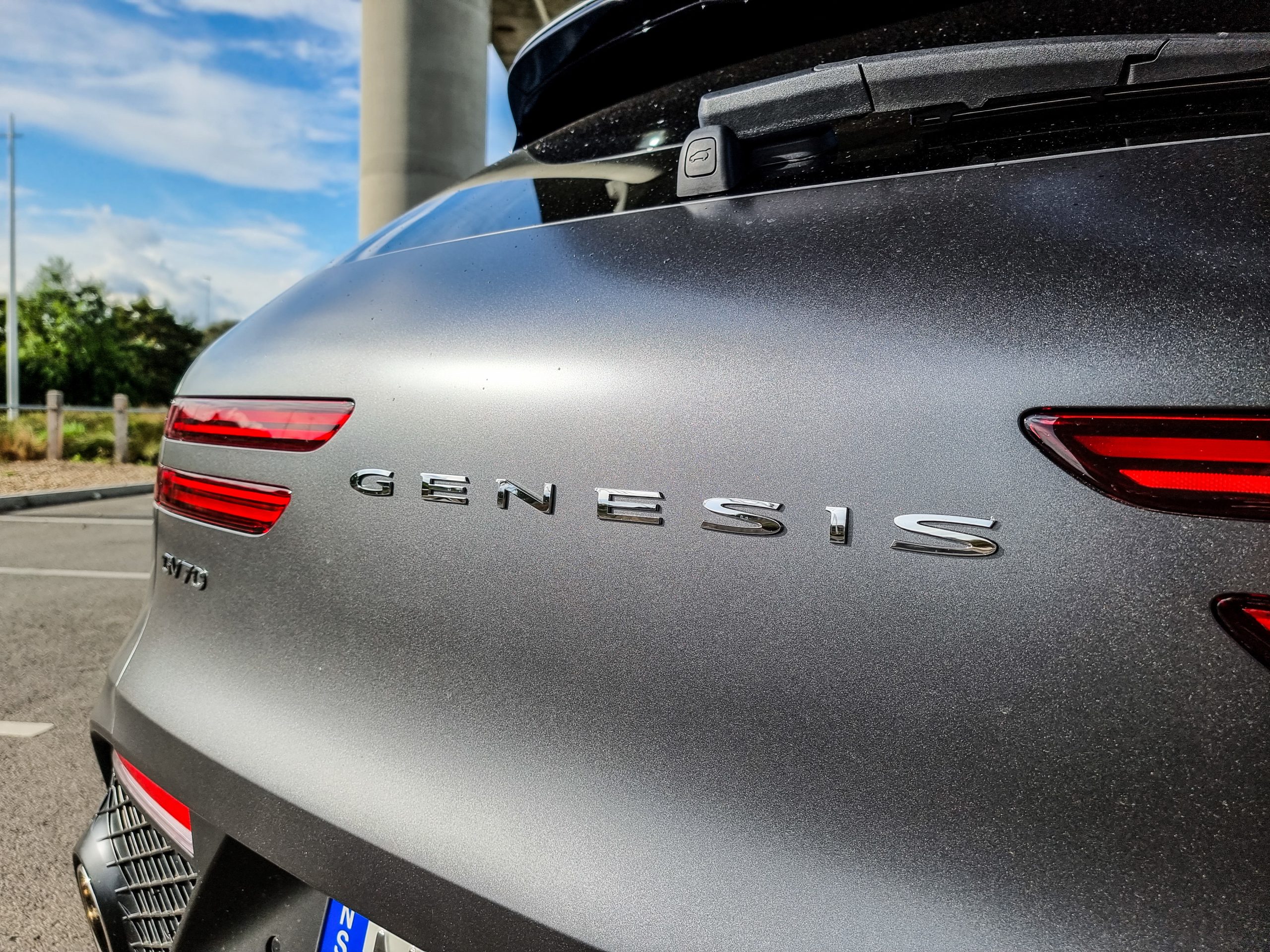
While Mercedes-Benz has finally switched to offering a five-year warranty, there’s no denying that $2,750 in servicing costs over three years would sting compared to zilch in the GV70. Meanwhile, BMW and Audi are still stuck with lowly three-year warranties.
2021 Genesis GV70 DiscoverAuto Rating: 9/10
The 2021 Genesis GV70 is a high point for the Korean luxury brand. It’s a testament to how hard Genesis is working to crack the lucrative luxury SUV market and has raised the bar for the brand in terms of distinctive design, technology and build quality.
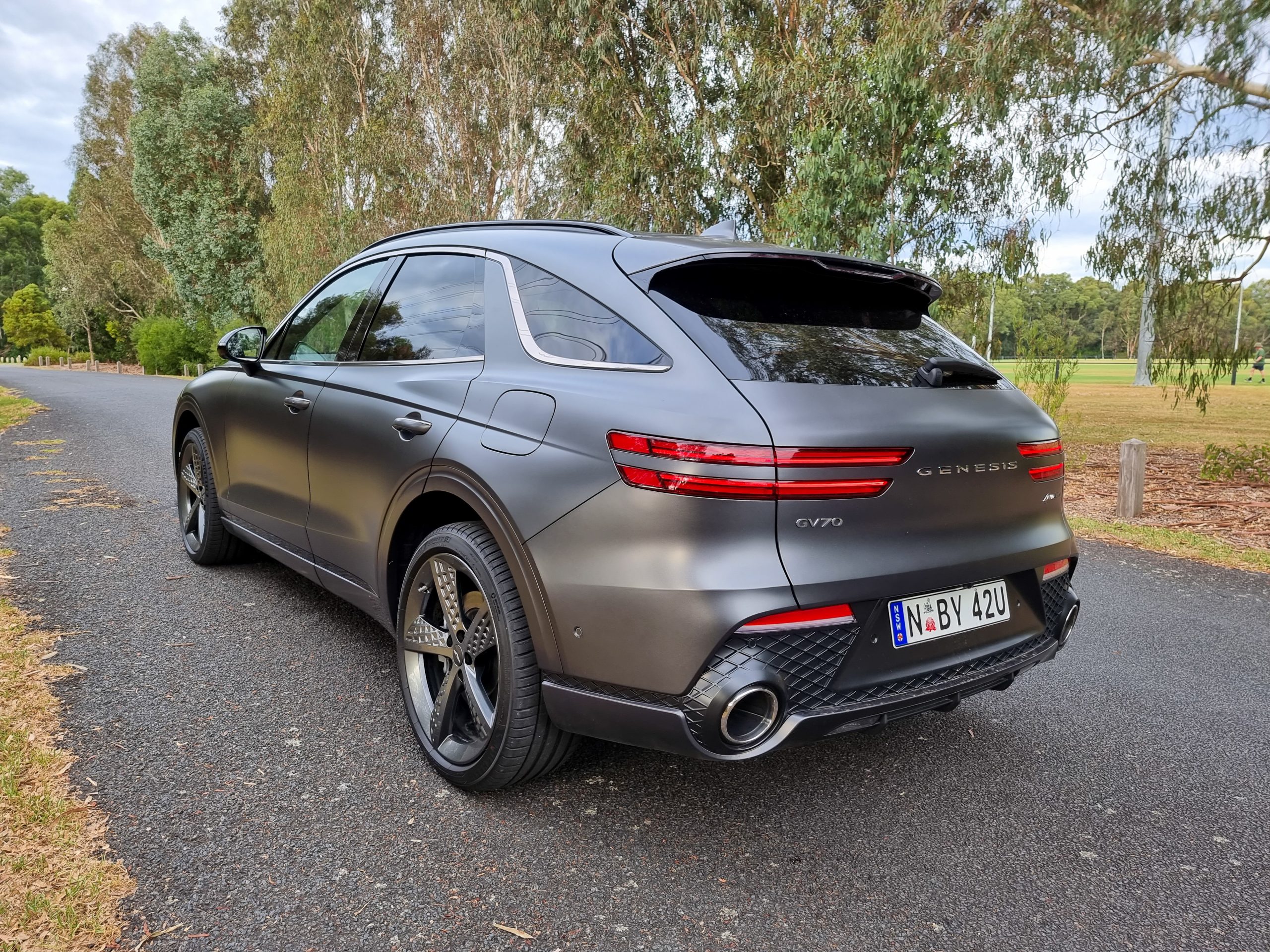
In V6 guise, particularly with the luxury package, its only real downfall is its thirsty drivetrain. And that the newcomer can offer such a resolved mid-sized luxury SUV at this price should be a serious concern for the status quo.
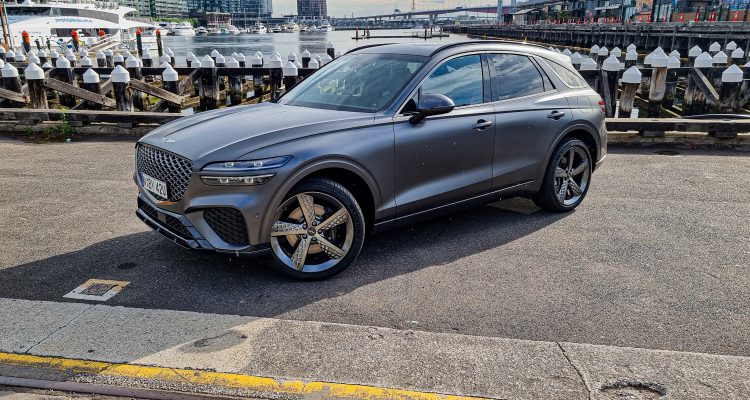
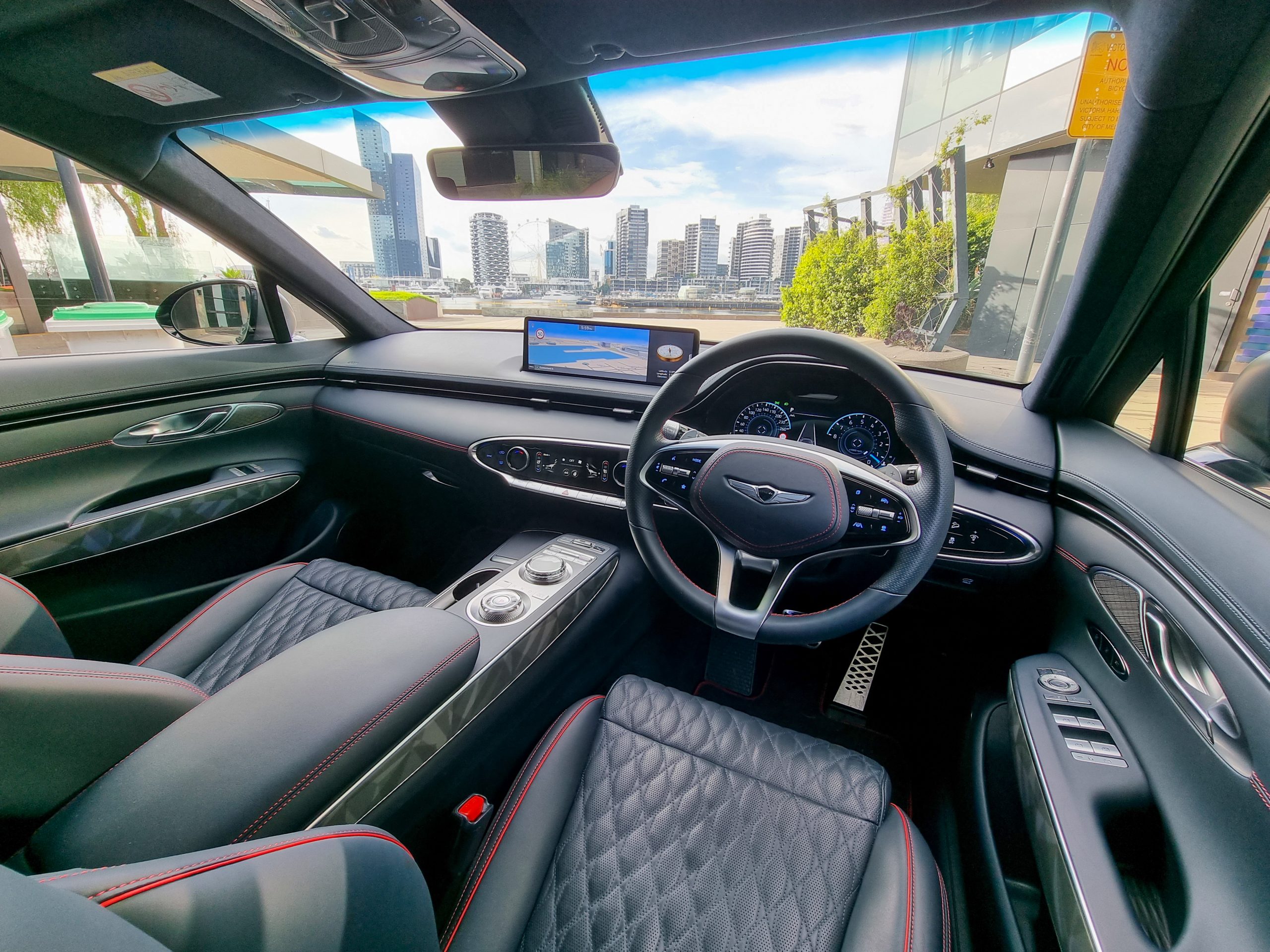
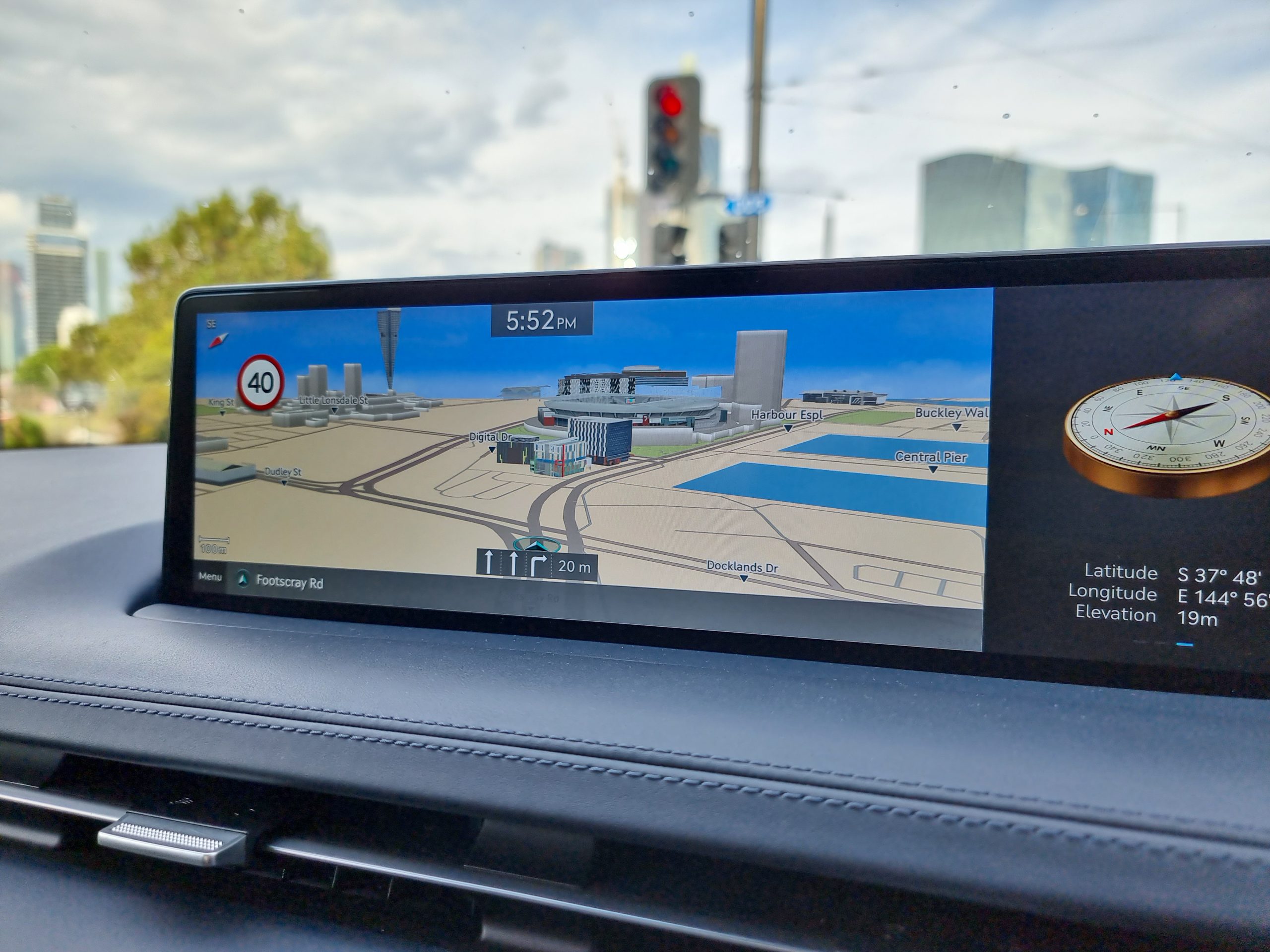
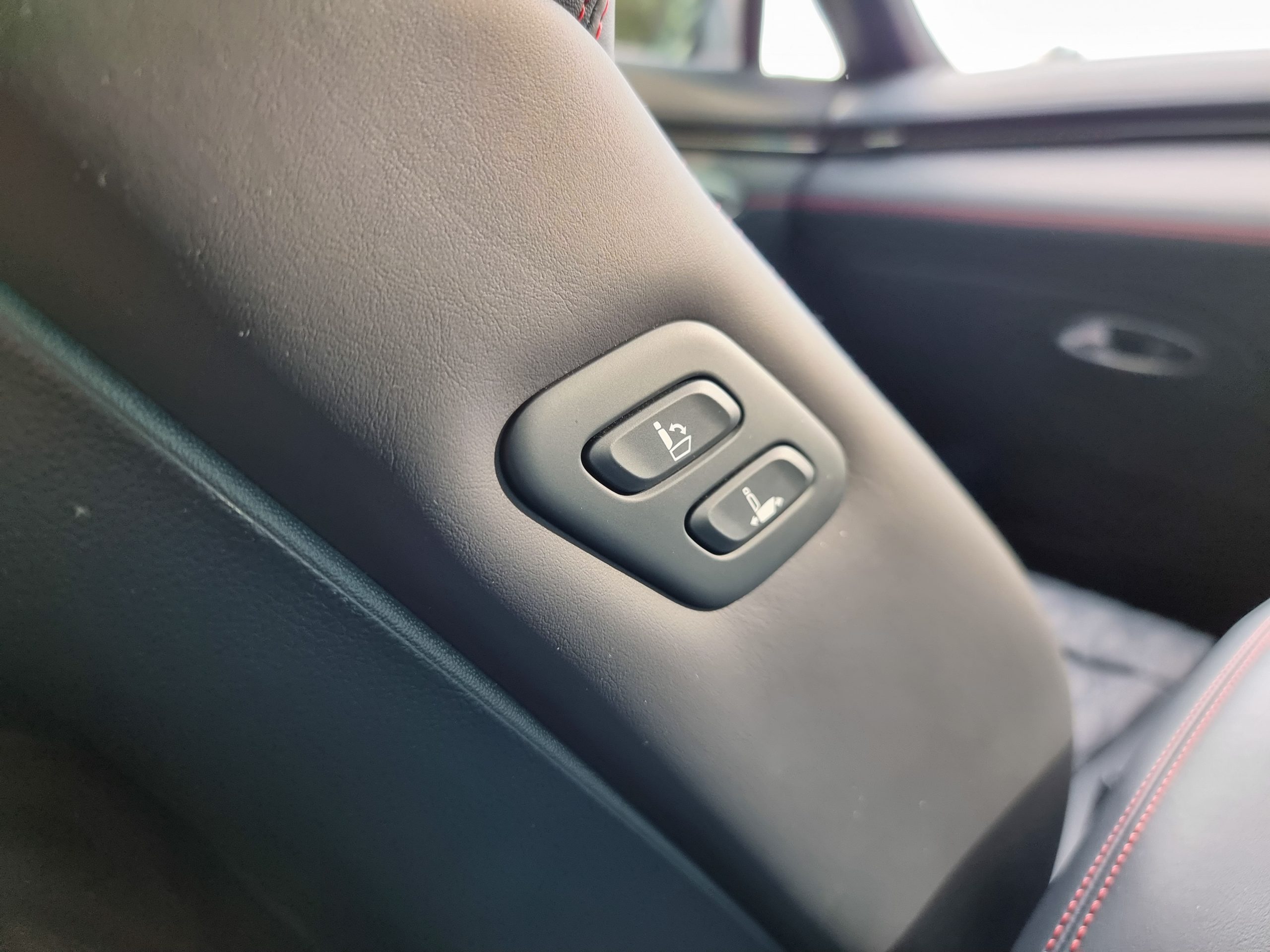
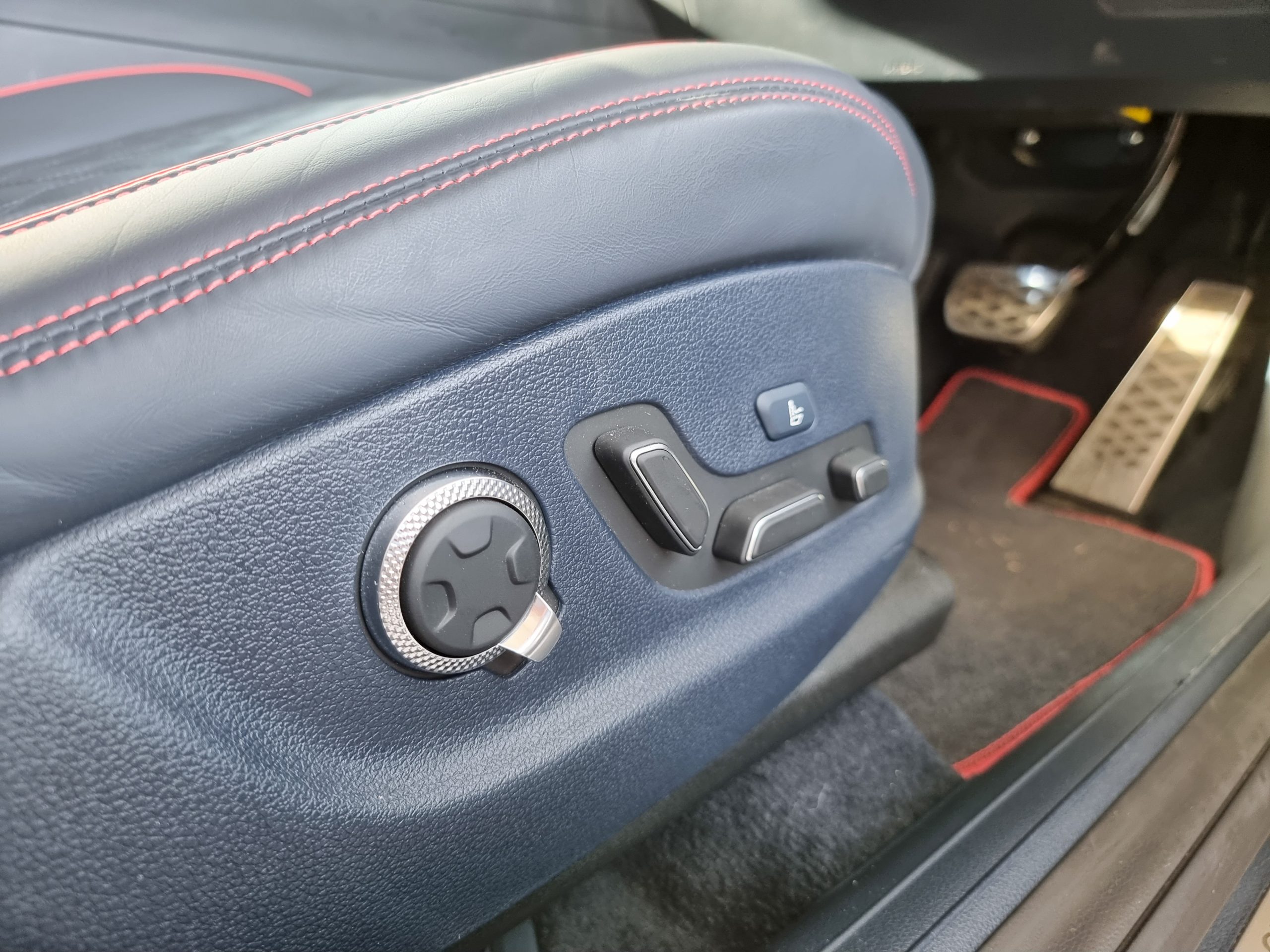
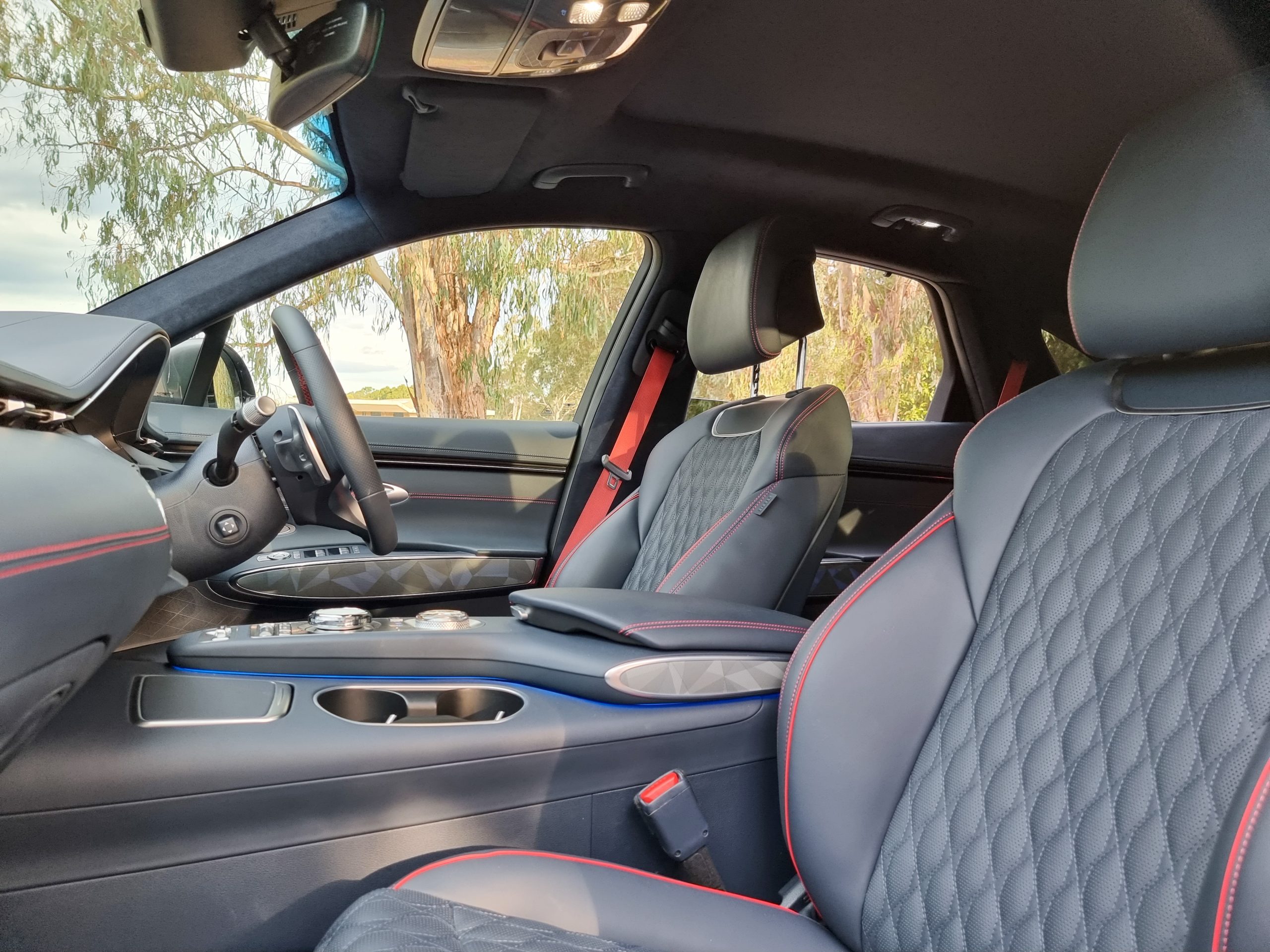
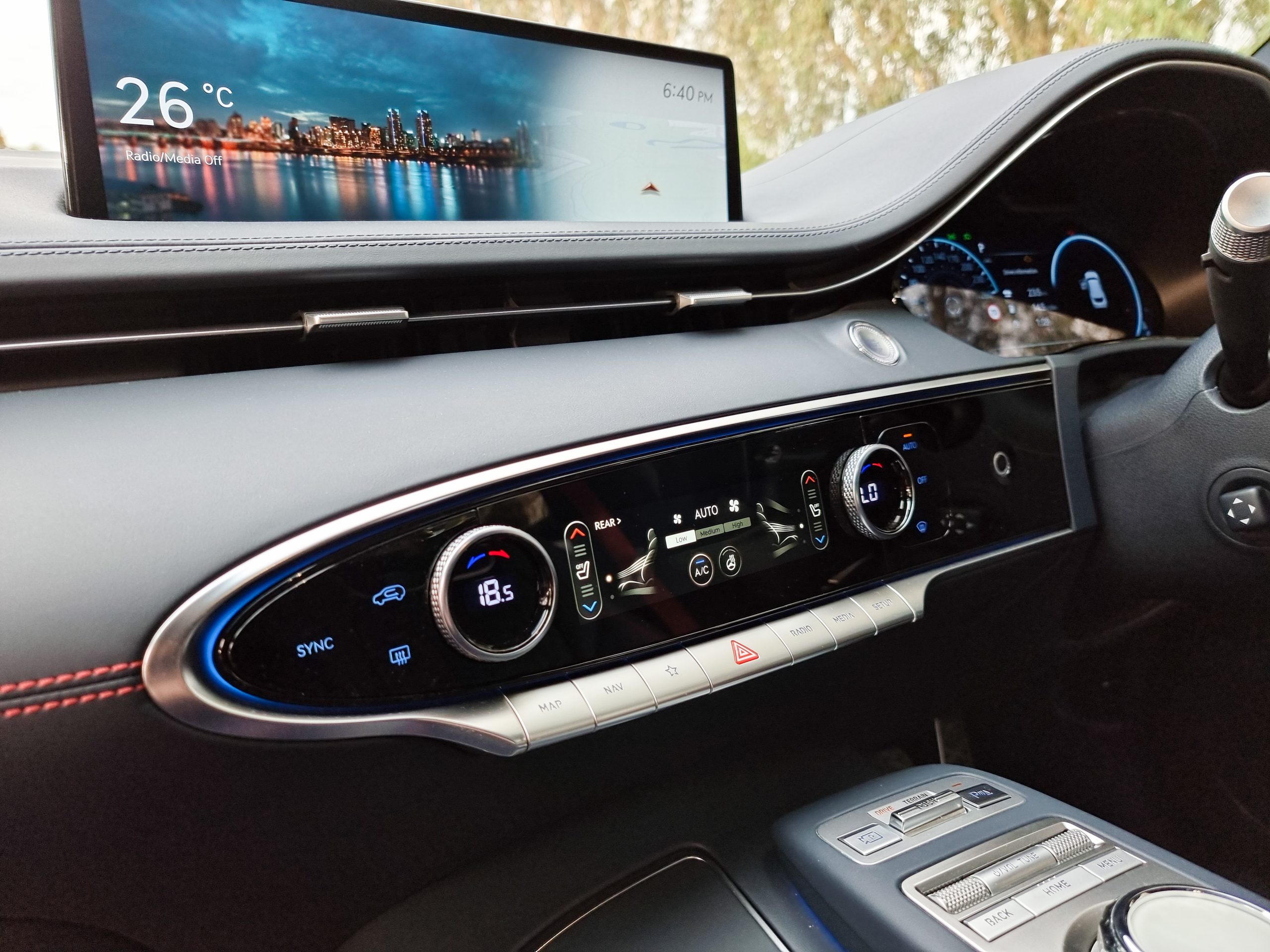
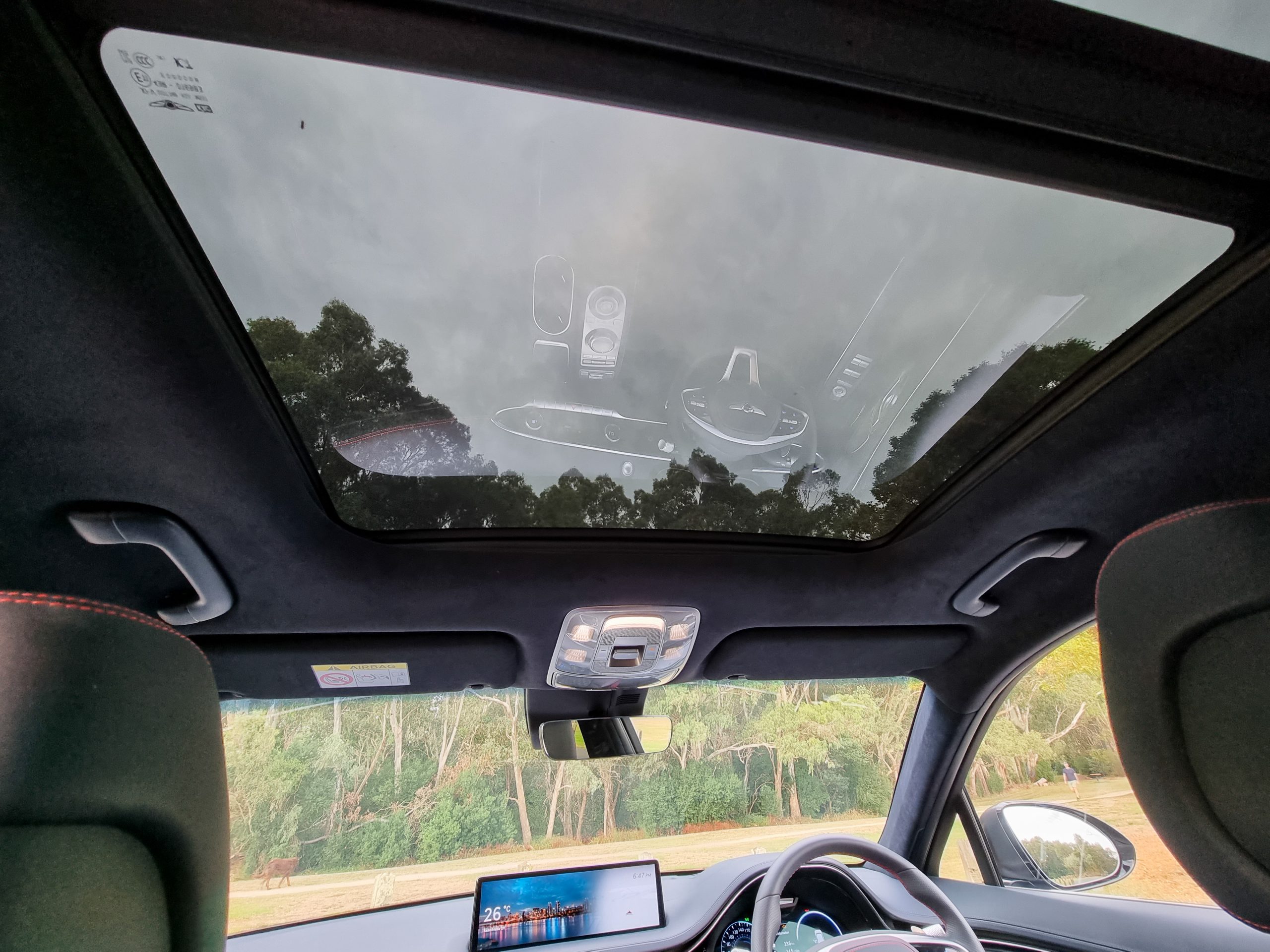
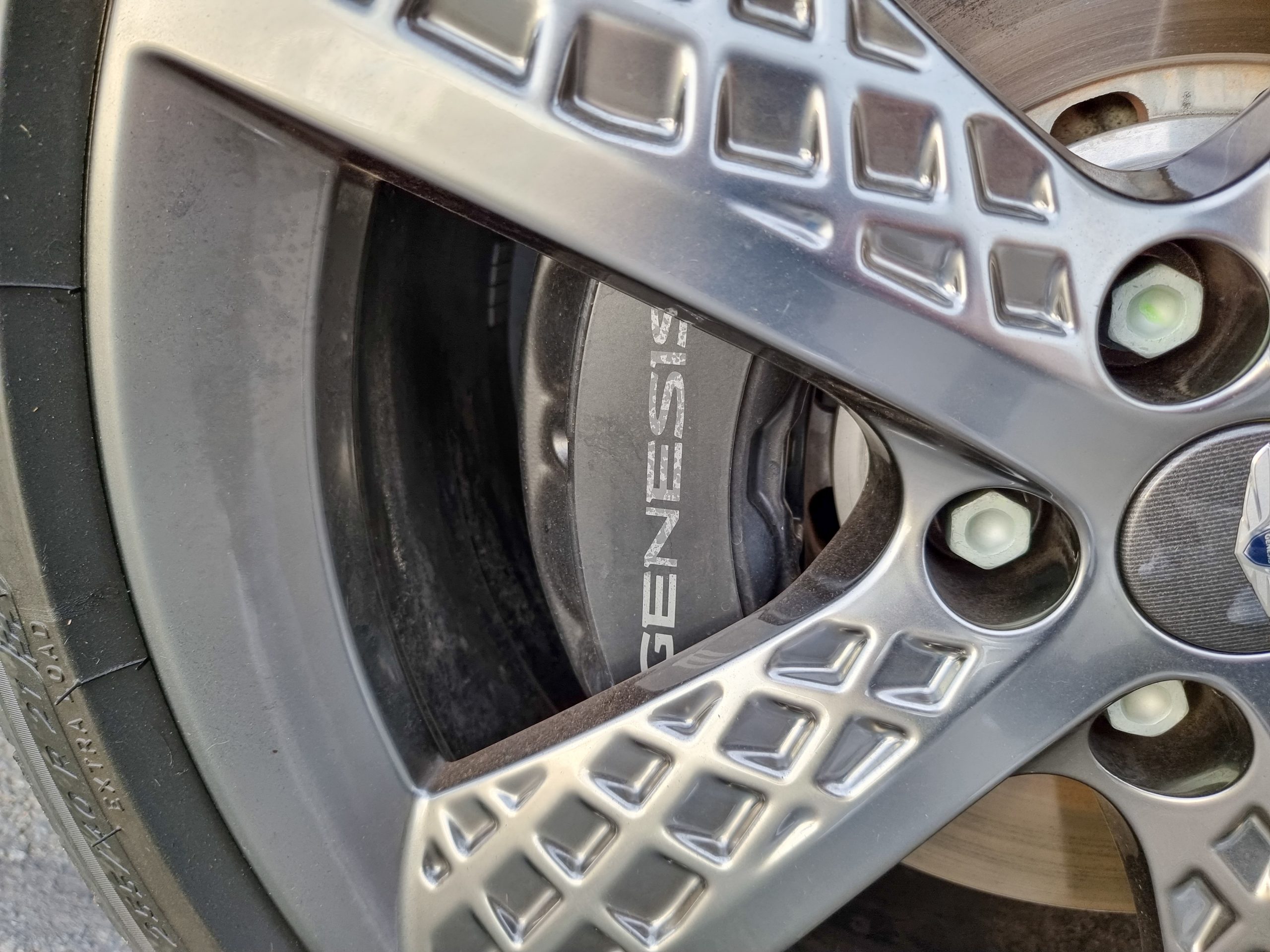
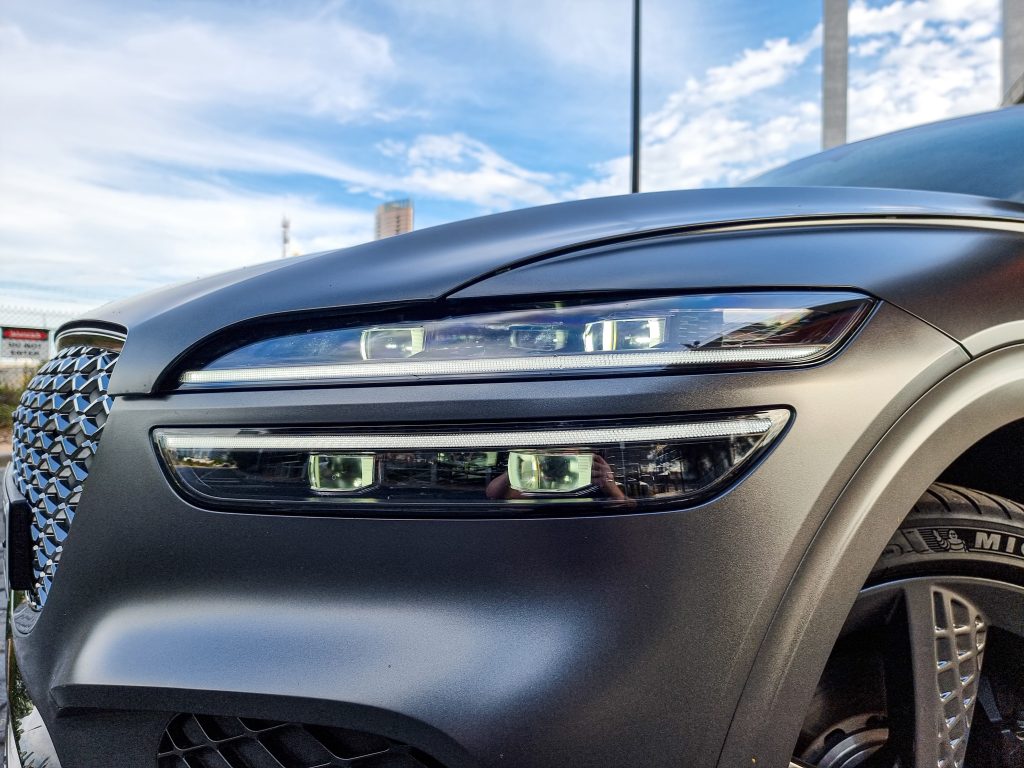
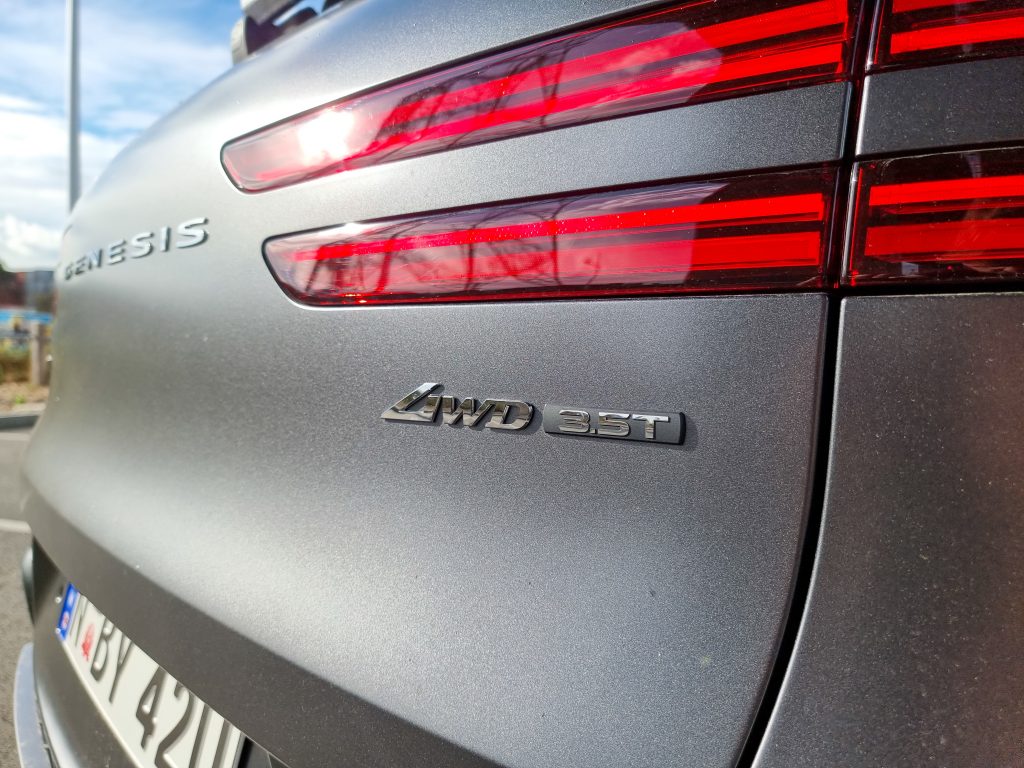
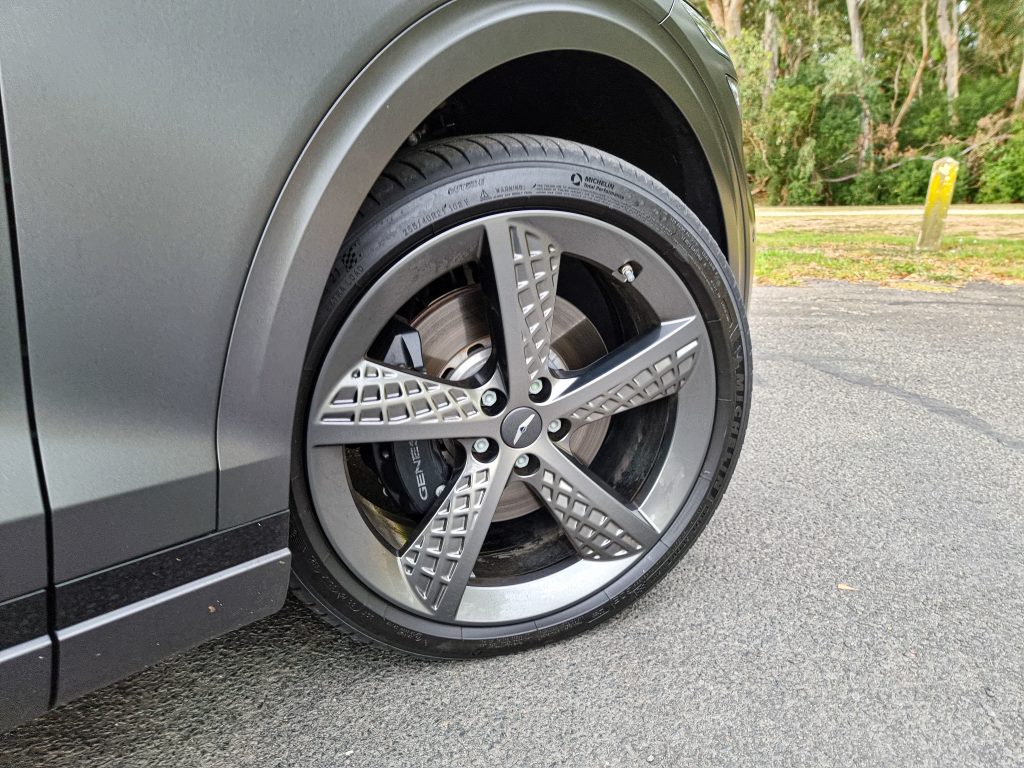
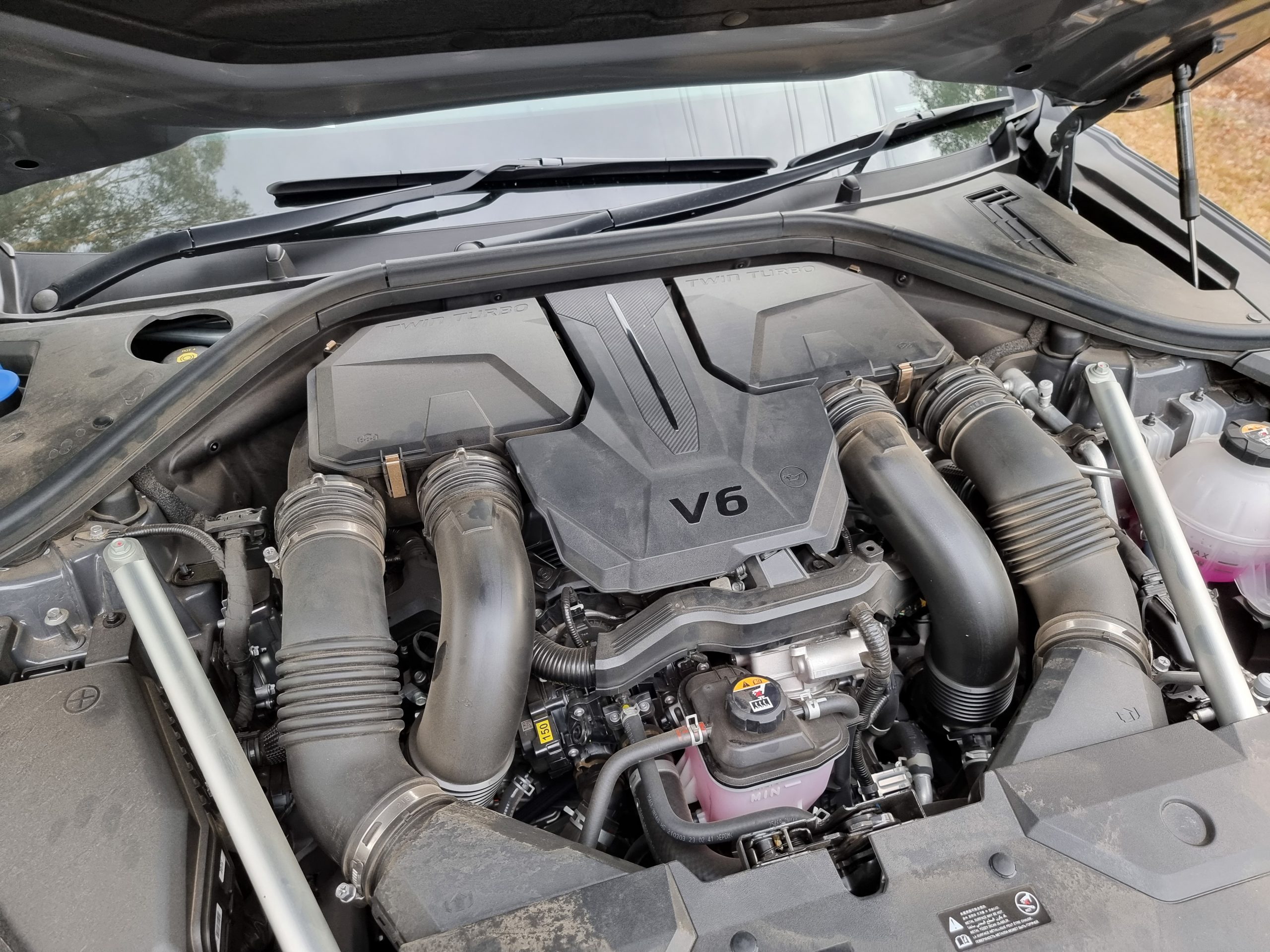
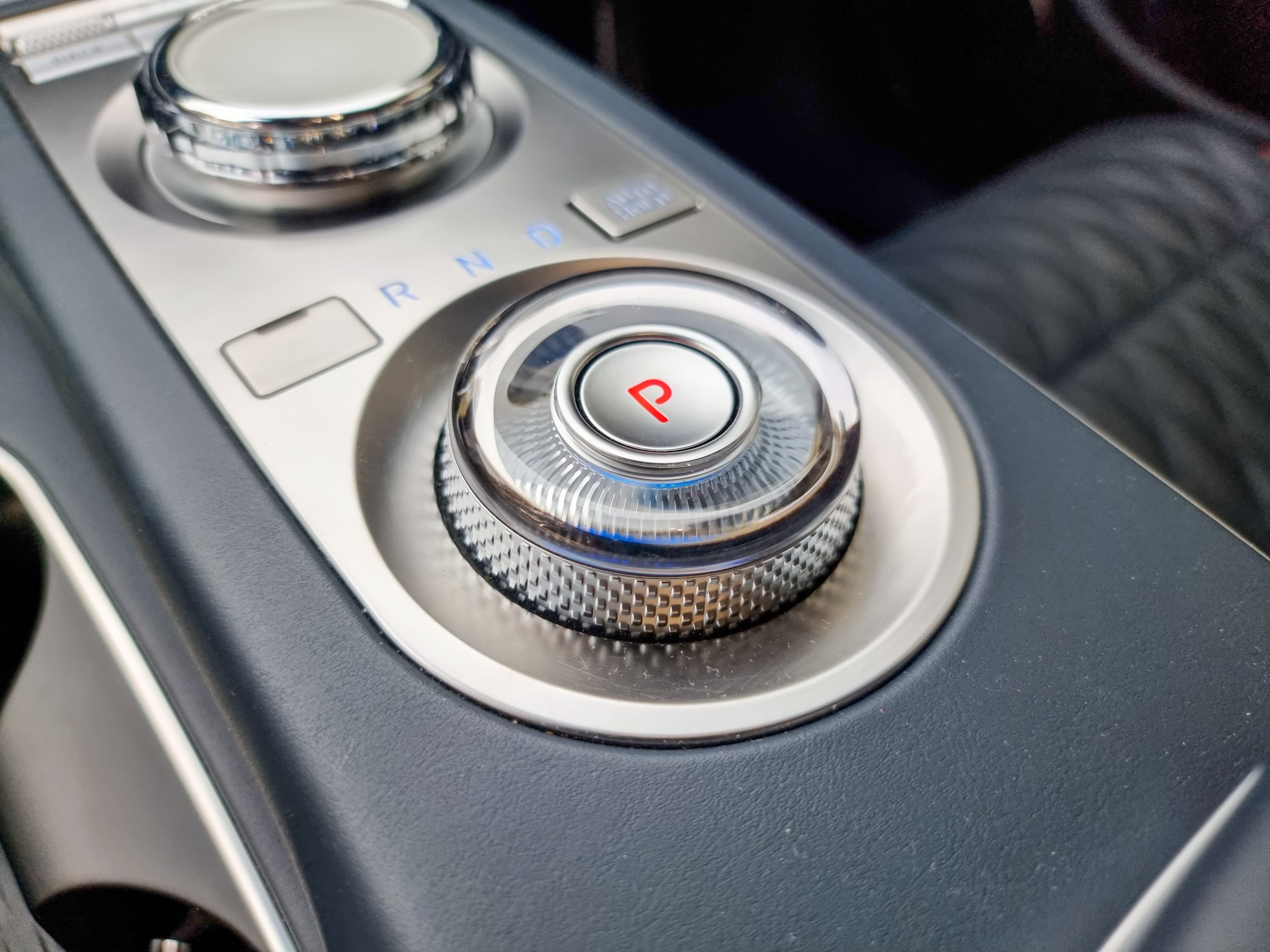
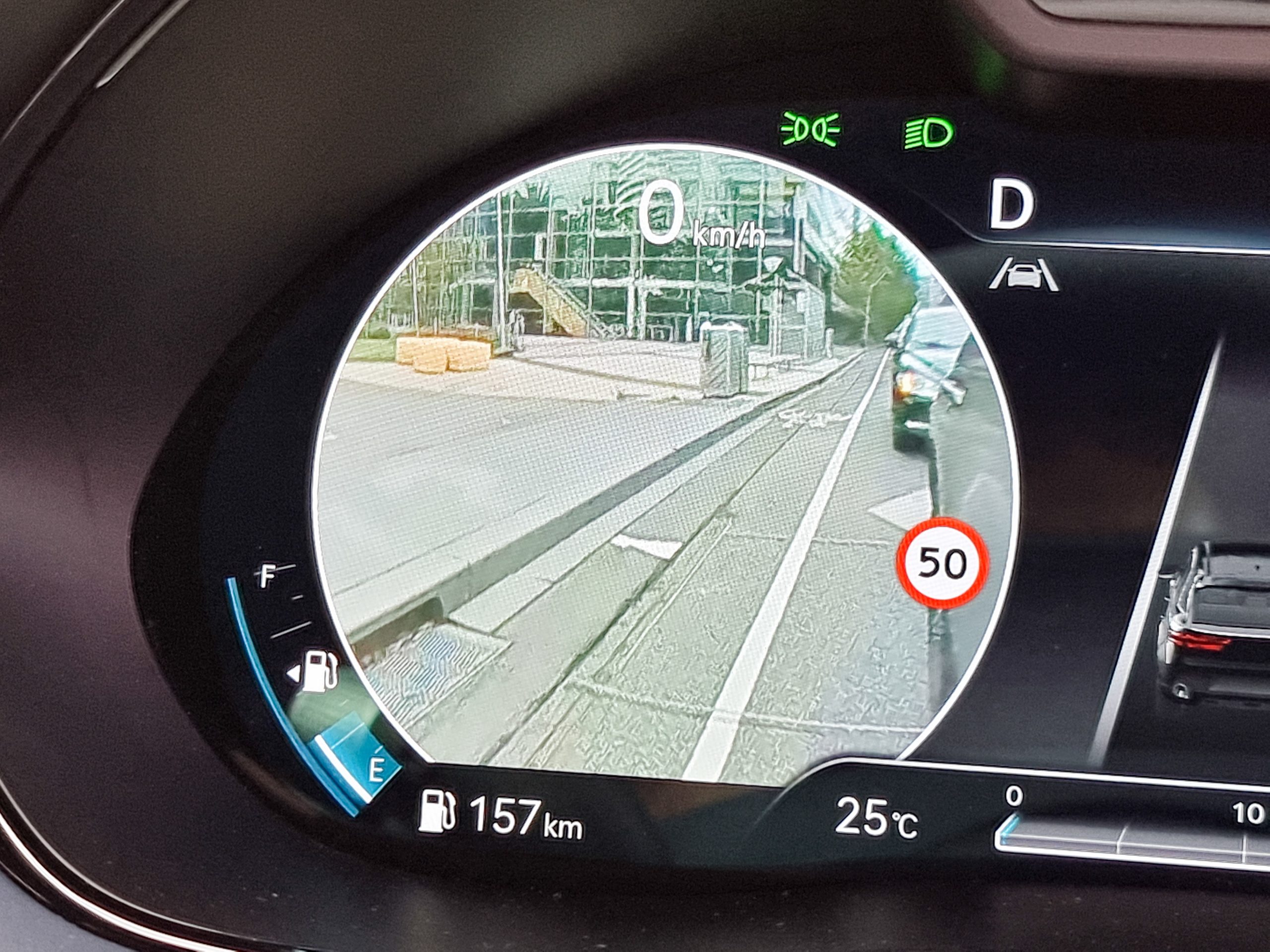
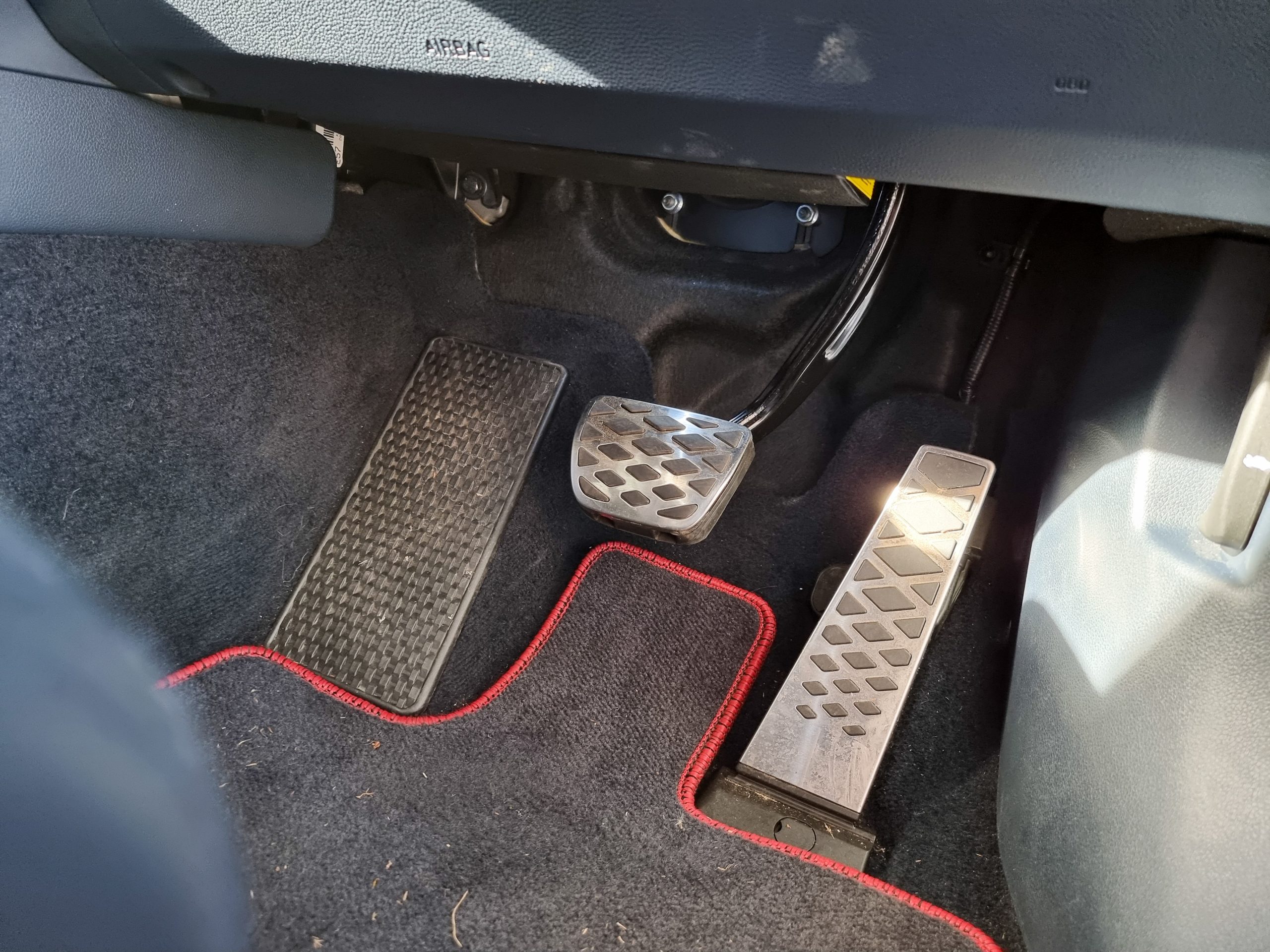
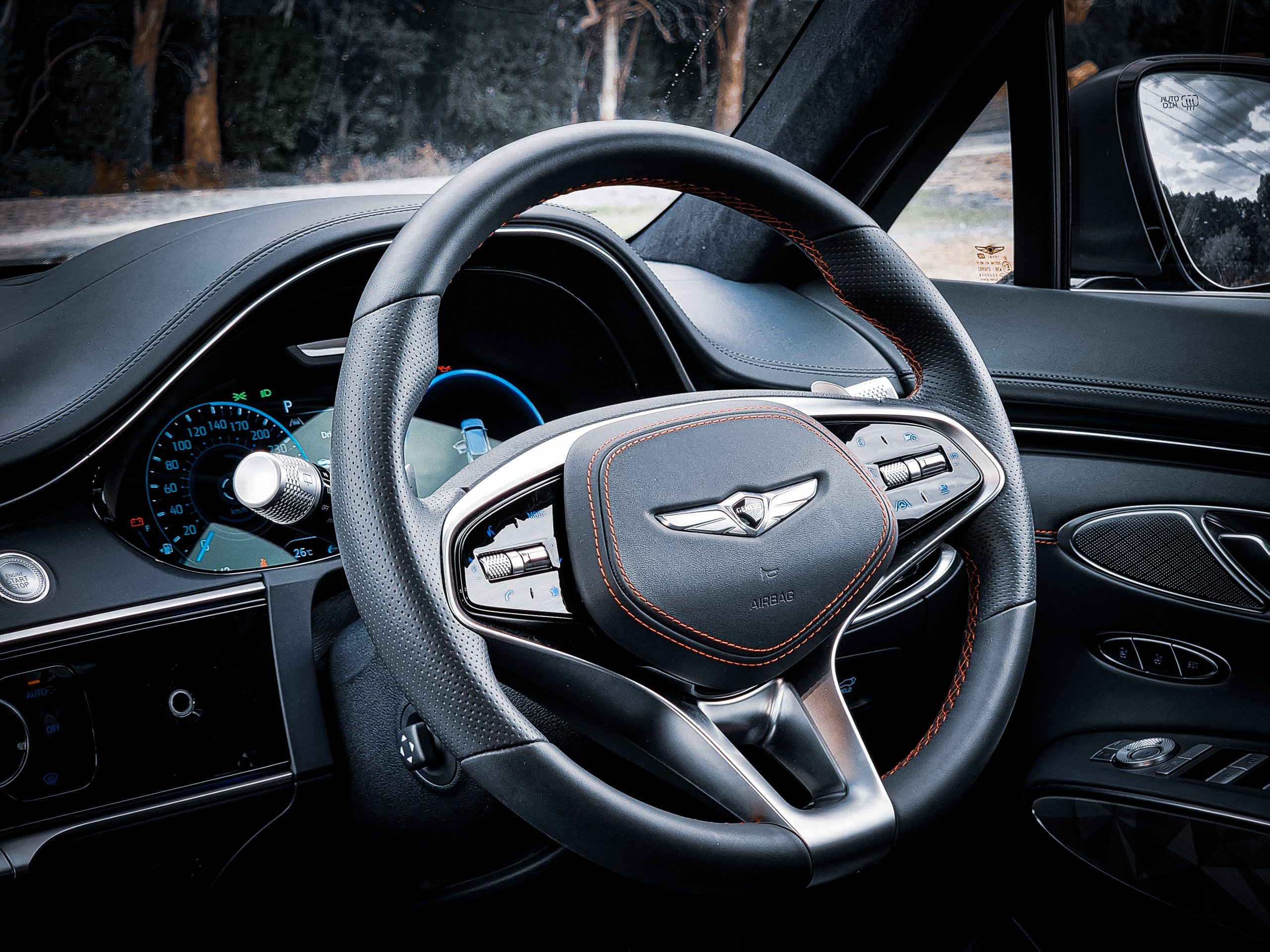
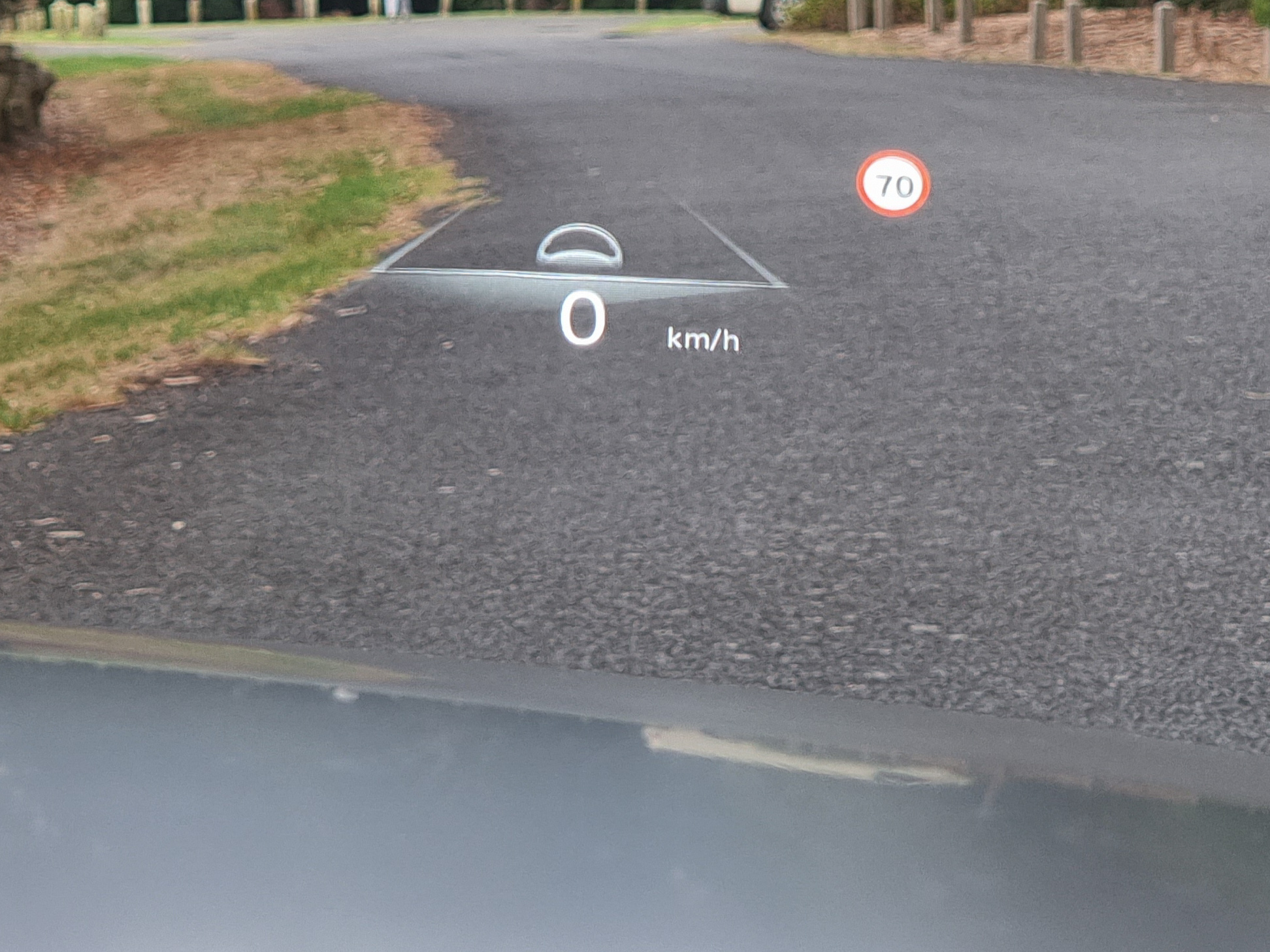
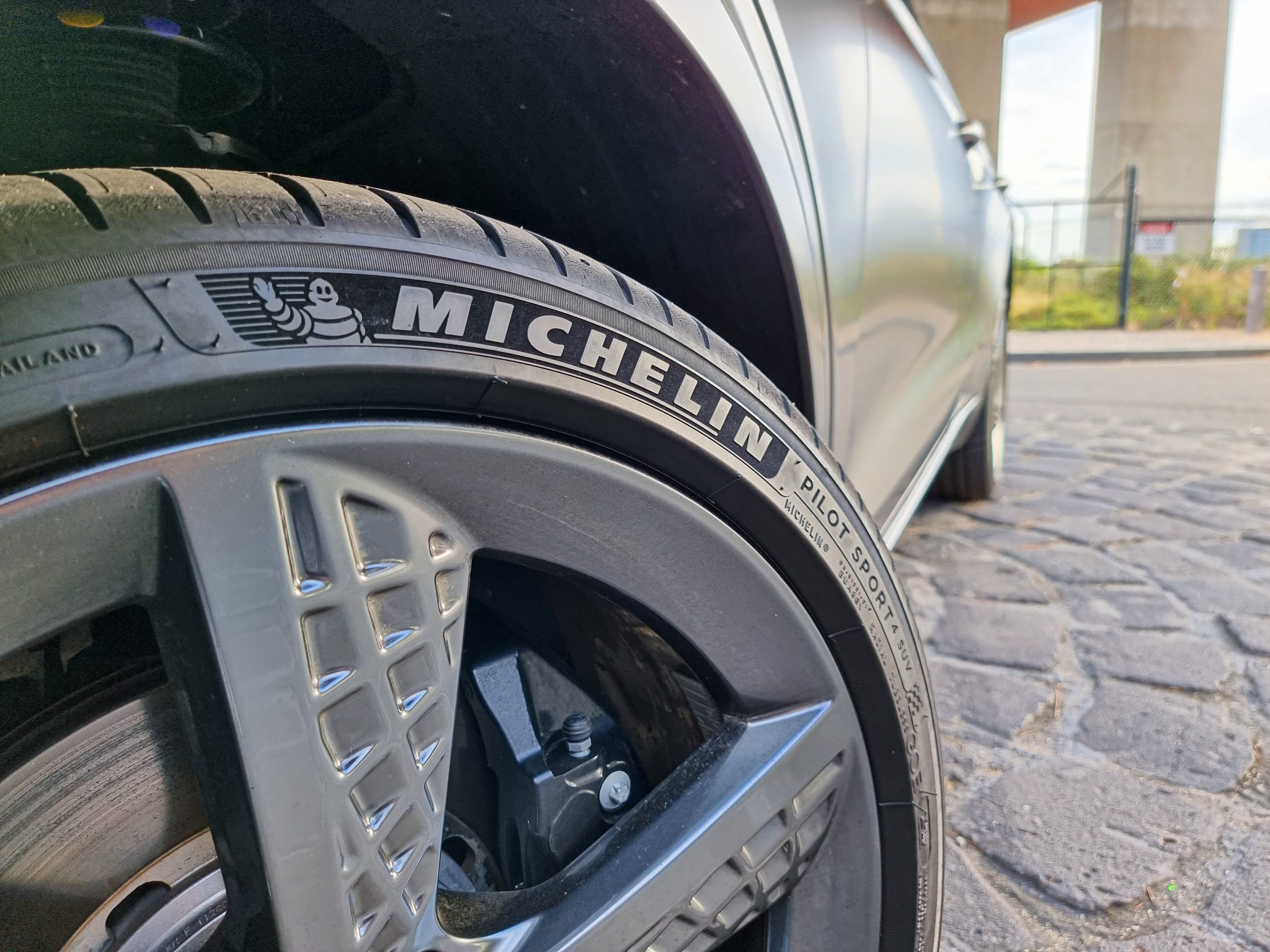
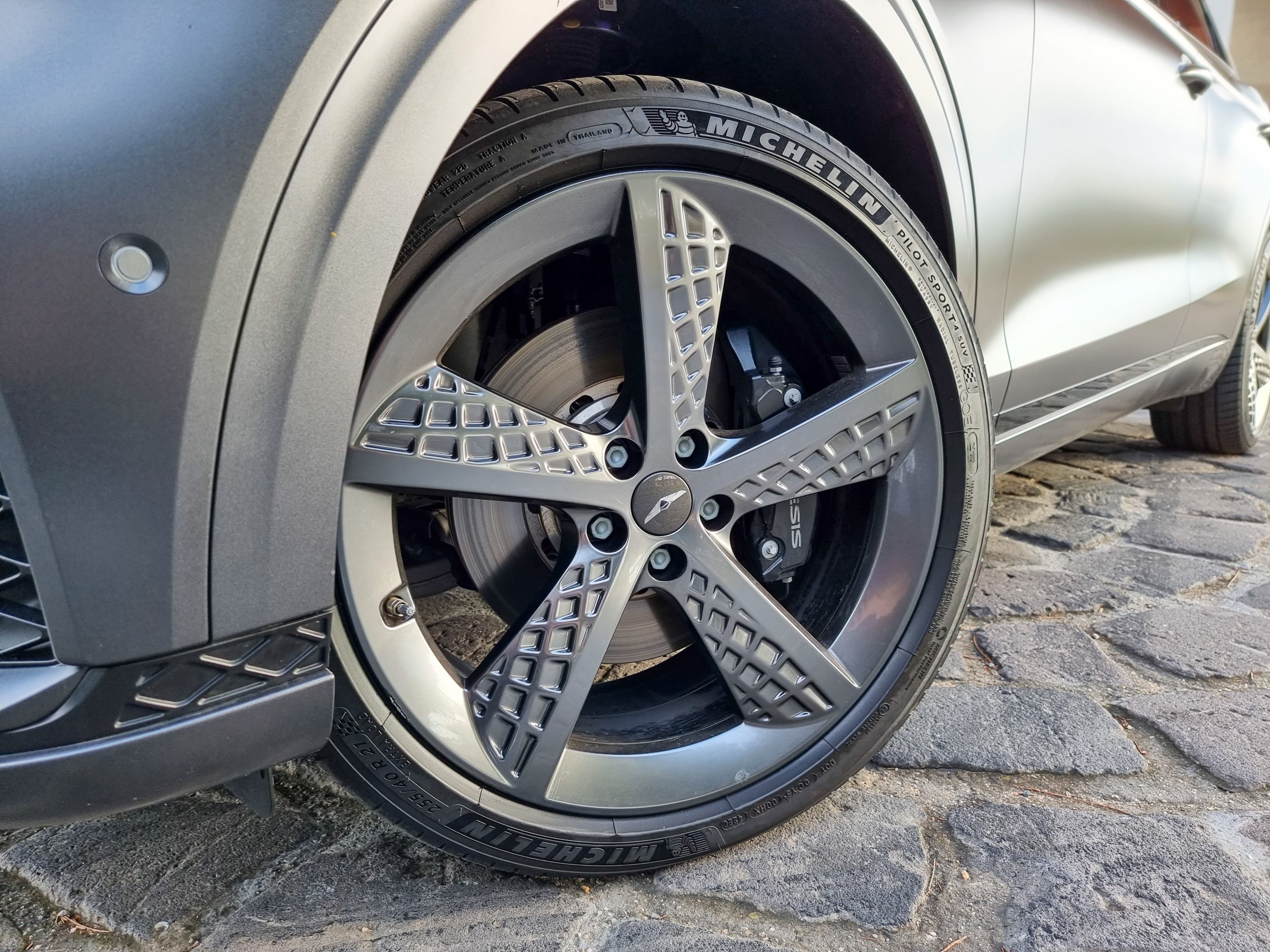
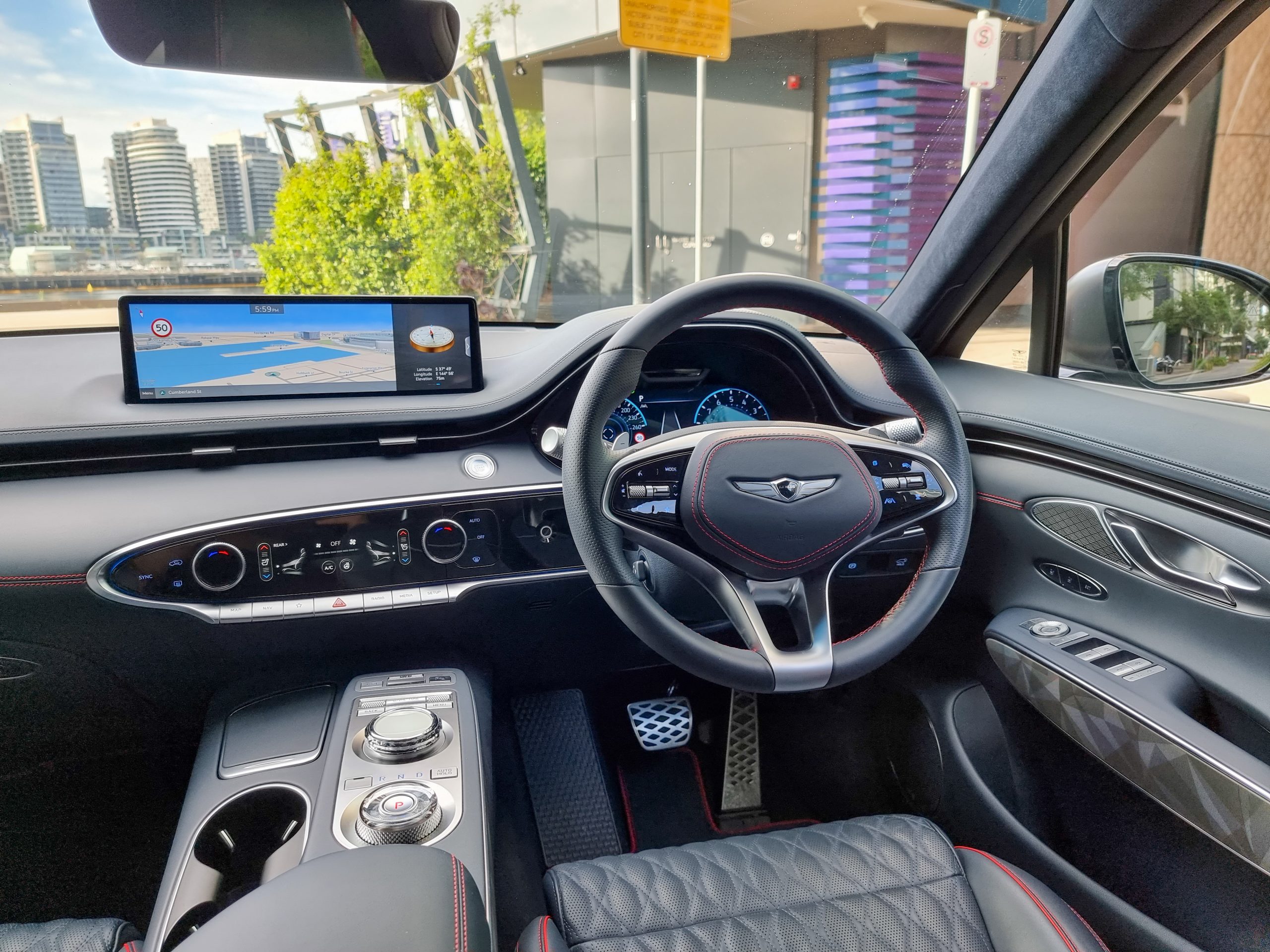
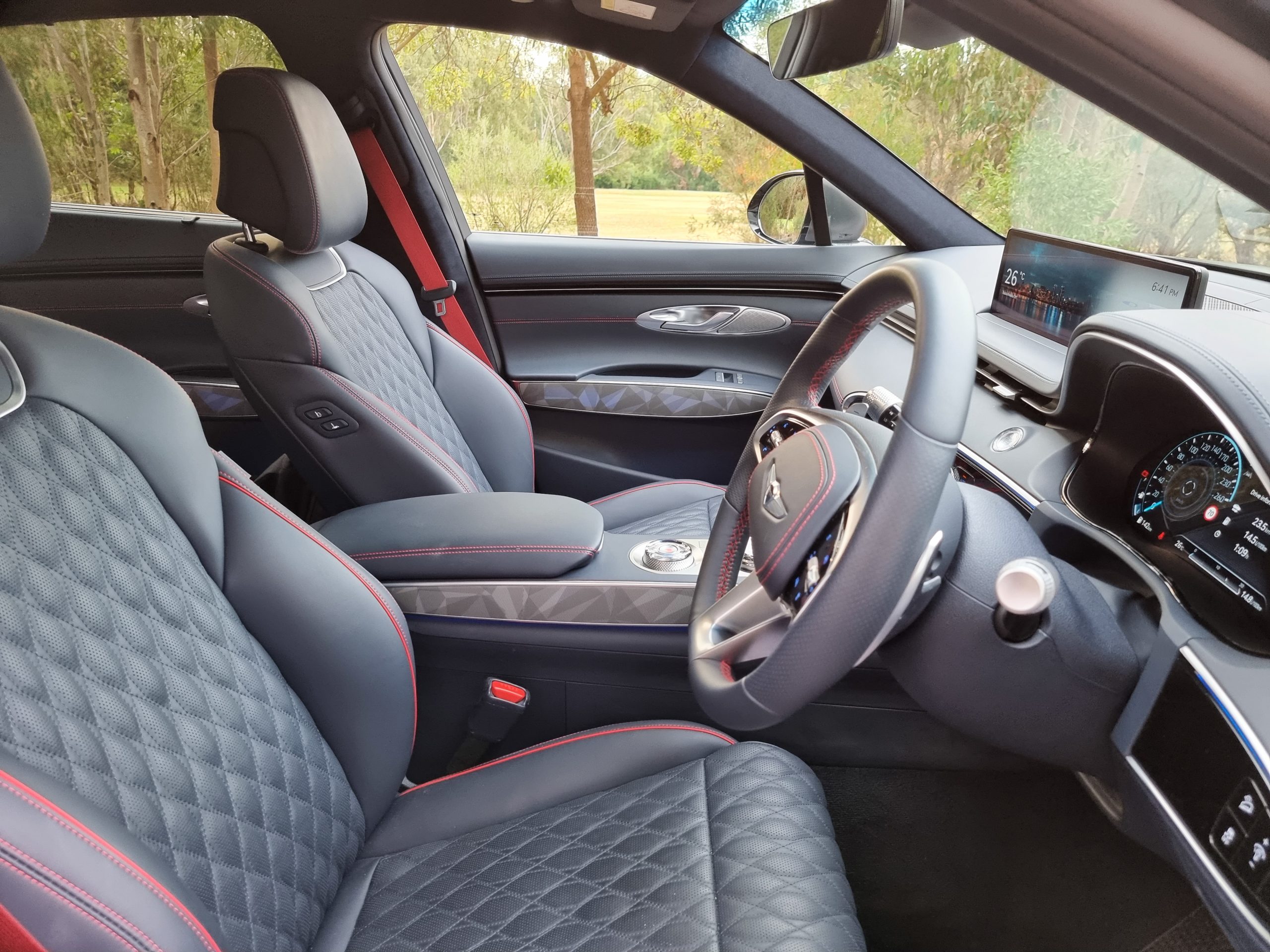
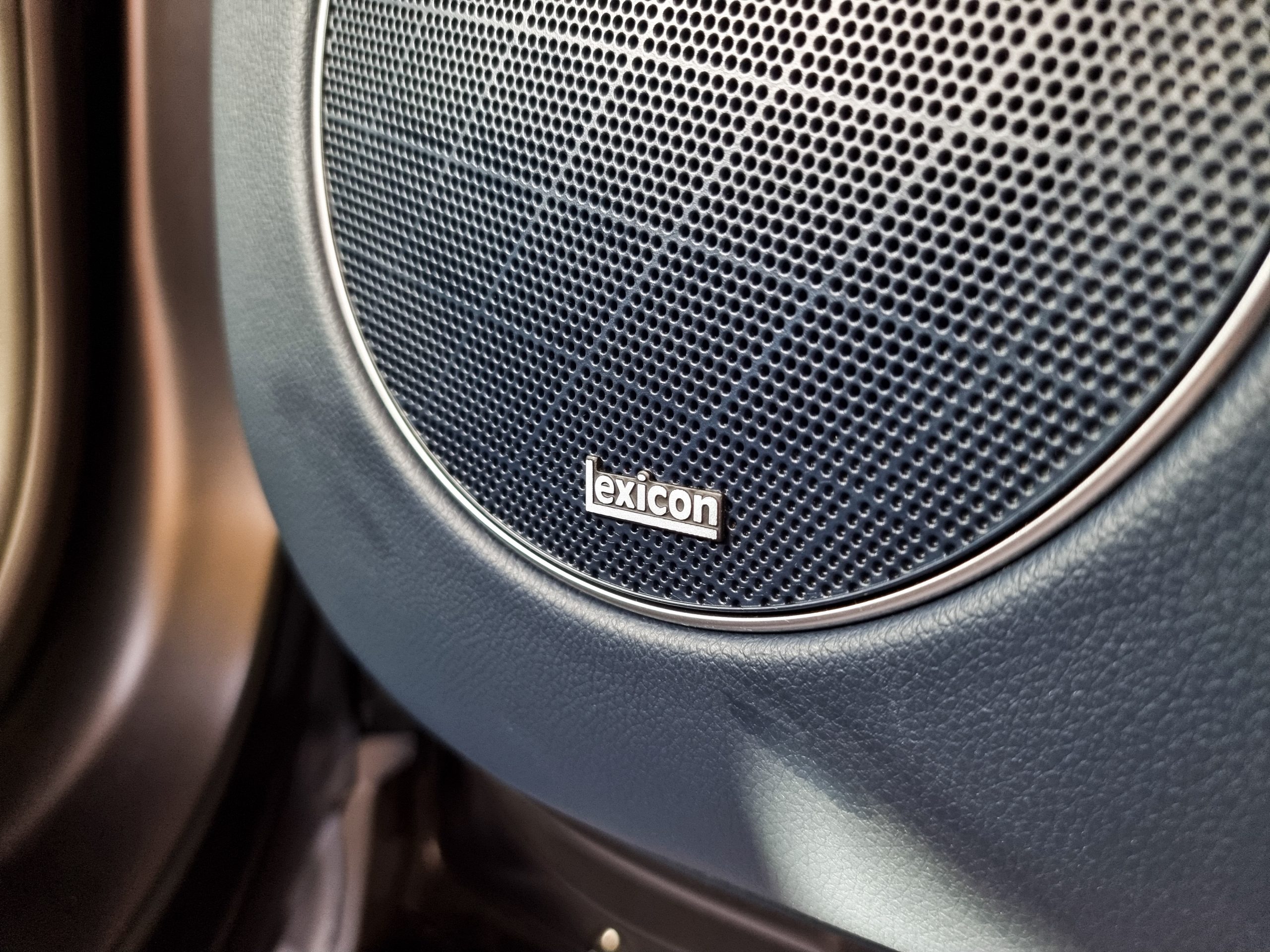
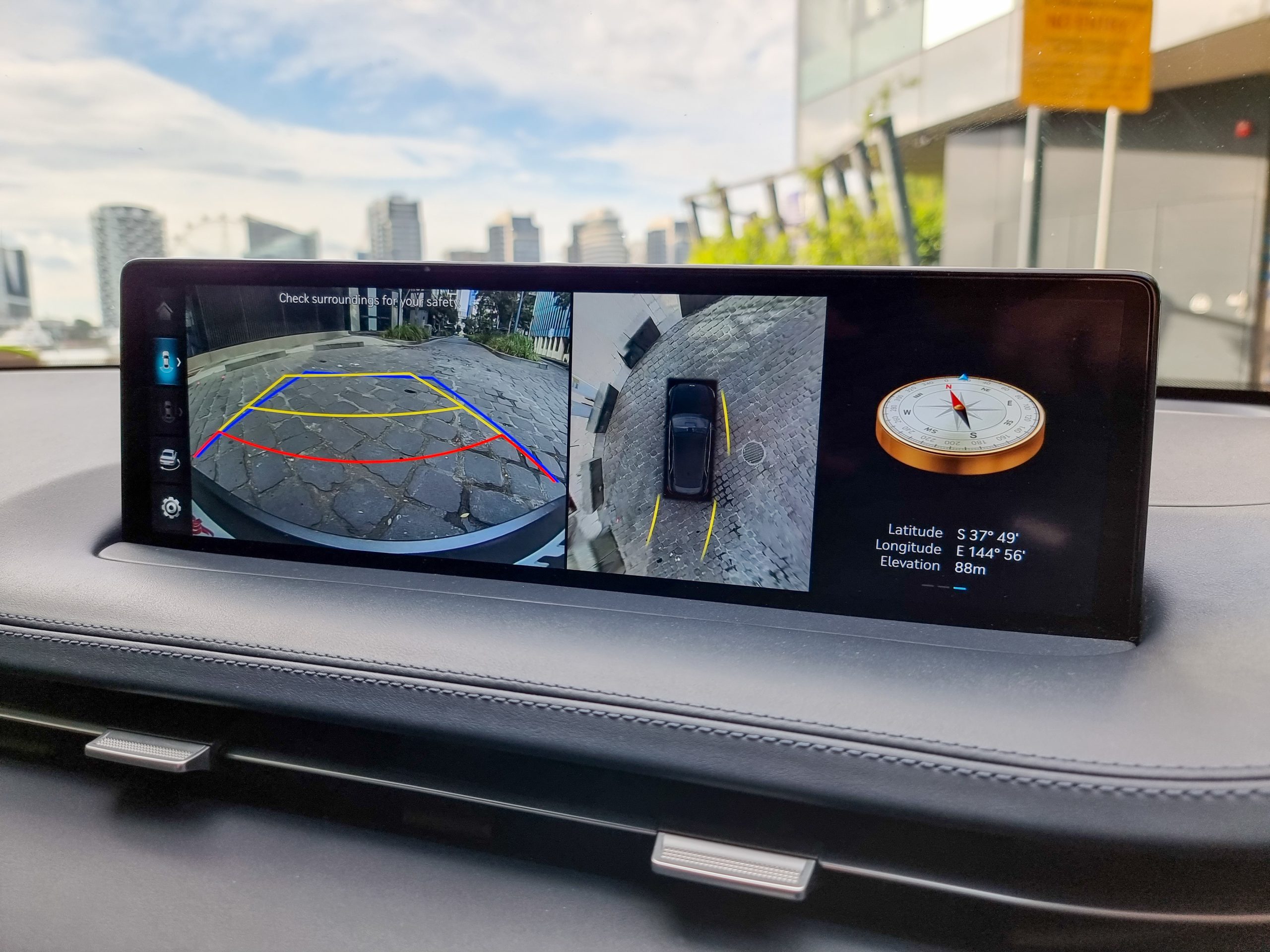
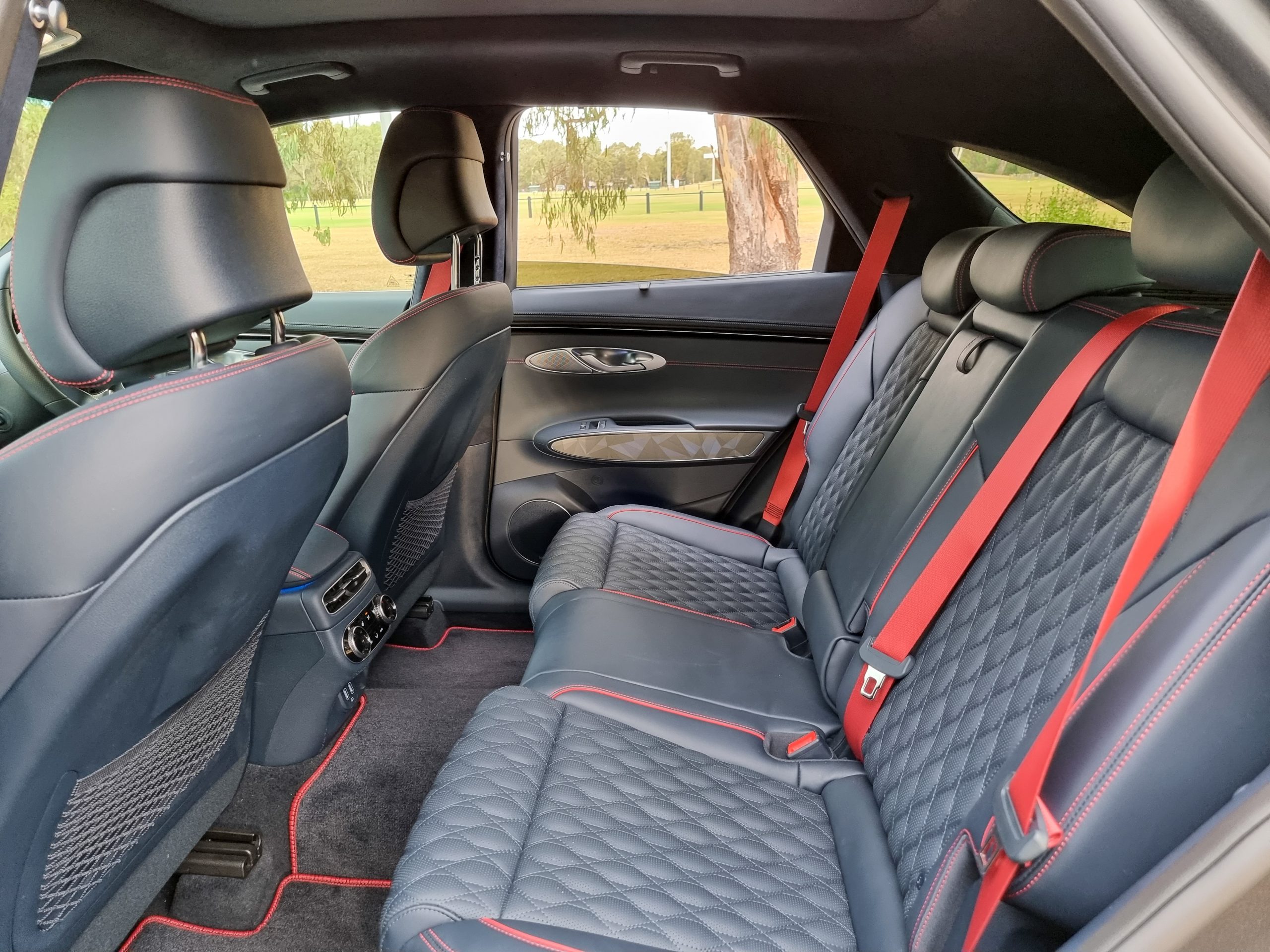
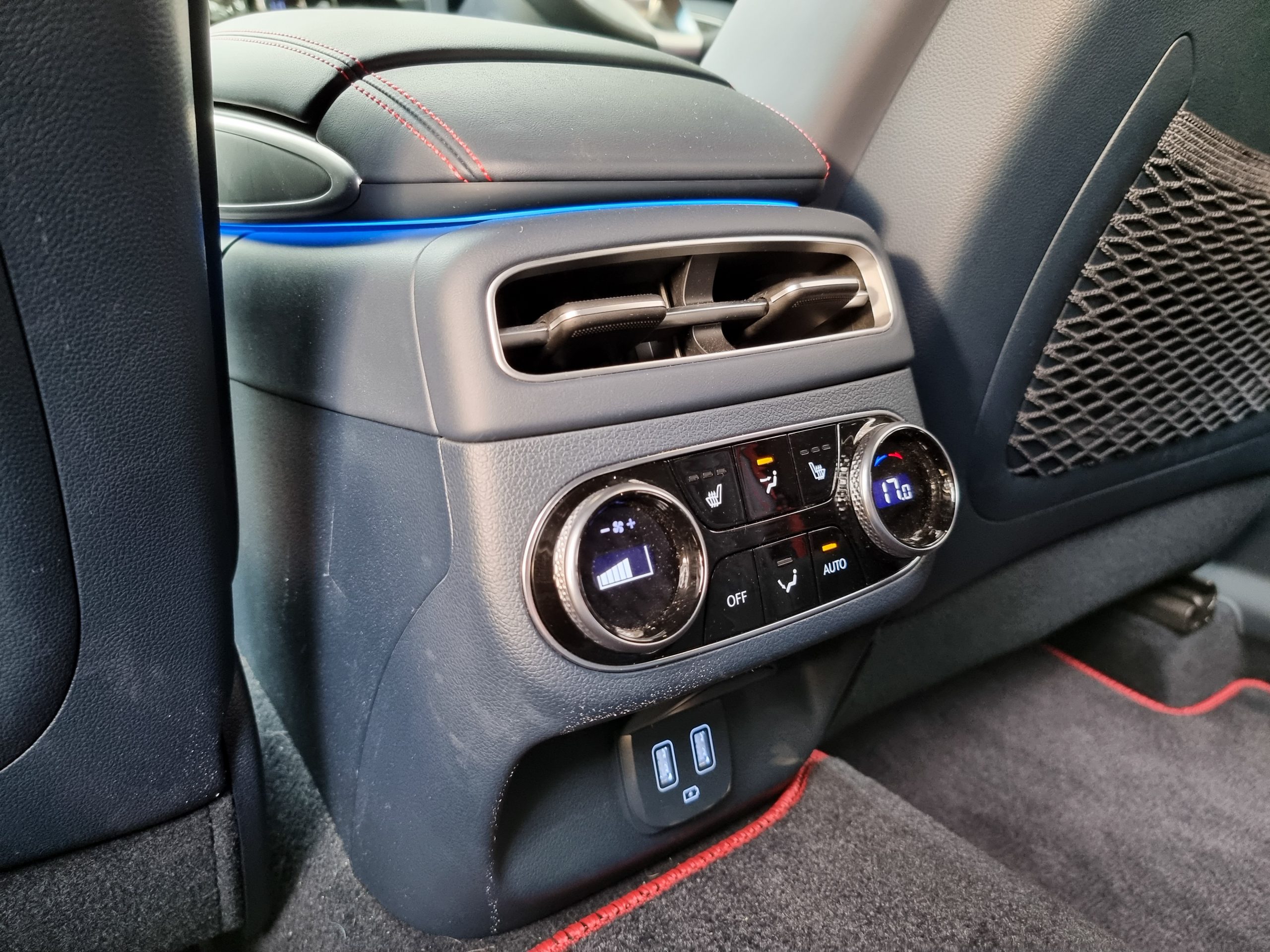
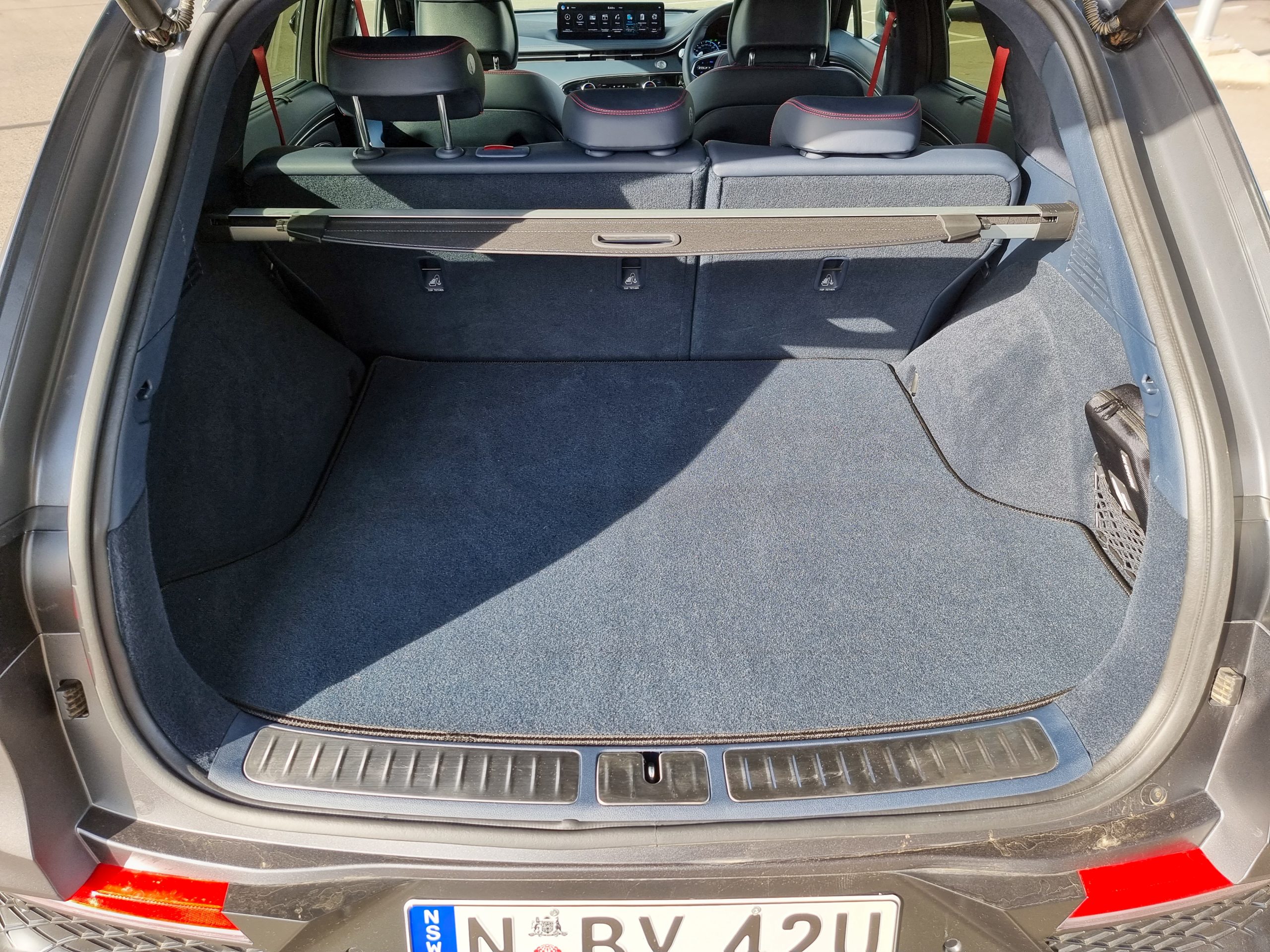
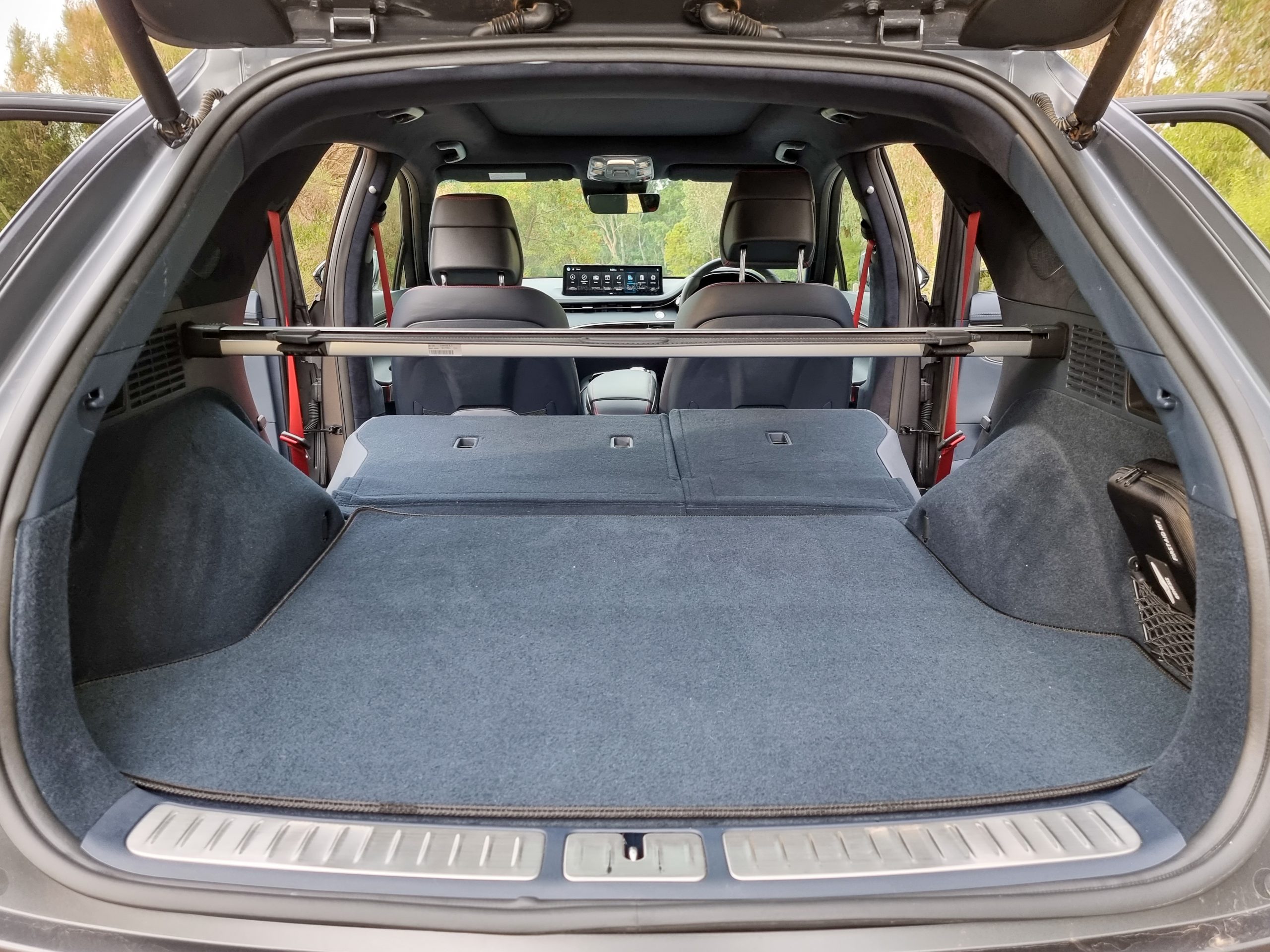
Leave a Reply